#''does it count as reference? who knows'' well it might not have until you explicitly mentioned the movie. so. chew on that I suppose
Text
2/13/2024:
0 episodes since Drawfee last referenced Cats (2019)
0 episodes since Drawfee last referenced Everytime We Touch (2005)
#episode: Using Animal Face Proportions to Make HUMAN Faces#''does it count as reference? who knows'' well it might not have until you explicitly mentioned the movie. so. chew on that I suppose#perpetrator: karina#0 episodes without cats incident#0 episodes without cascada incident#as always thank you to those who sent asks! <3#drawfee
170 notes
·
View notes
Note
hi. uh. i have recently heard that marx, in the original japanese translation, is implied to have just. always had his powers??????????? this is. so so strange to me. bc of. yknow. similarities to Things In RTDLDX. as well as void termina having similar wings ???????? like ????? it makes so much more sense that he wished to rule popstar so nova granted him the powers so he'd have the capabilities to overthrow anybody who stands in his way (except kirby of course) AND NOVA WAS MADE BY THE ANCIENTS !!! SO!! THE SIMILARITIES IN His POWERS MAKE SENSE!!
is this. unfortunately true? :') and.. if so.. where does it say this and how.. and.. why.. ough ough ough ouhg...
(sorry if you're busy, this is just on-par with Magolor's bombshell of "actually im not from halcandra lmfao" and COMPLETELY shattered everything i thought i knew and i dont know how to find anything about this that better explains it!!)
So, I'm probably the biggest "Marx got his powers from Nova" stan in the fandom (?) and I am more than happy to talk about this! (While noting that, even though I believe in it now, and have "evidence" for it, I accept that things change in Kirby. Until it does, ala "I'm not really from Halcandra," I remain staunchly Nova-Wings)
Anyway, since you said the original Japanese, I went ahead and compiled EVERY line of dialogue relating to Marx in Kirby Super Star / Super Star Ultra! All re-translated by yours truly!
Let's see what it says!
--
[Instruction Manual]
"The sun and the moon got in a big fight, and now night and day in Dream Land are all jumbled together. Marx the Magician has told Kirby this can be resolved by linking up the planets in the vicinity of Pop Star and summoning the giant comet. What will Kirby do?"
[Opening Cutscene]
"Hey, hey, hey!" / "You want the sun and moon to make up, right?" /"Then you ought to make a wish on the comet, Nova, located in the furthest reaches of the galaxy!" / "But don't go thinking it'll be as easy as all that!" /"To summon Nova, you need to link up all the nearby planets to gather enough energy!" /"It'll be a long journey, but hey, do your best!" /"After all, everyone's counting on you. Good luck!"
[Cutscene 2]
"READY >" / "I WILL GRANT JUST ONE WISH OF YOURS... >"
"Then... I want Pop Star to be all mine!"
"OK > 3 2 1 GO! >"
"I did it! Just like I hoped!" / "The sun and moon fighting? You going on a journey into space?" / "All of it was my part of my perfect little plan!" / "Anyway, Pop Star's mine now!" / "Now I can play all the tricks I want! Sorry not sorry!" (1) / "Ho ho ho ho ho! O ho ho ho ho ho!"
[Starship - Pause Screen]
"The Starship was created with the power of the stars!! Fly, toward Nova's core. Put a stop to Marx's ambitions (2) then have a good meal and a nice nap."
[Starship - Pause Screen - SDX version]
"The light of the Milky Way (3) has gathered and when it cleared, the Star Ship was there. Destroy Marx's ambitions with this!"
[Marx - Pause Screen - SDX version]
"Marx has revealed his true intentions. In order to protect Pop Star, it's time to Fly! Kirby of the Stars!"
--
I think the issue here is that last part:
"Marx has revealed his true intentions."
Because the bolded text can also interpreted as "true self" and that (plus its usage in other games) has led people to think it is explicitly referring to Marx's exterior. Now, the reason I translated it as "intentions" above is because 正体 can refer to character as well!
Just as an example, when Magolor grabs the Master Crown and reveals his ambitions, you (assuming you were Meta Knight, as he's the only character who would talk like this...) might say to him 「正体を表したな! 」 ("So, you reveal yourself!") even though we know that Magolor's boss form isn't his true form, it's just a transformation.
I'm not here to lecture everyone that this word HAS to specifically be referring to Marx's intentions. The point I want to make is that it is debatable. And it is probably going to remain debatable until Marx makes another appearance and HAL Labs has reason to clarify whether its one way or the other.
(For those who believe Marx's winged form to be his true form, I'd love some theories on why he resembles the Master Crown, Dark Nebula, Void Termina, and other Ancient Artifacts! I really hope we start getting more Marx + Ancients theorizing down the line... Even as a Nova-Wings stan, I'm very interested in this line of thought!)
But, speaking of, I'm such a sap for the Nova-Wings theory I'm going to end this with one more piece of evidence he wasn't born with them...
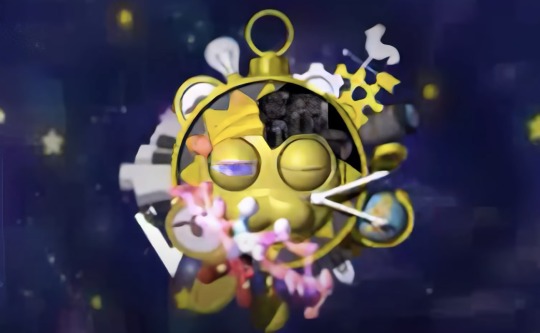
When you "defeat" Marx, it is visibly only his wings that go haywire. This is another, not often discussed thing that Marx and Magolor have in common. Sure, the fight with Marx doesn't have the cinematic direction that RtDL does, where you can see when using the Ultra Sword that Kirby is striking at the Master Crown, not Magolor, but take that in mind and go backwards. You can assume it is the same with Marx as it was there, because Marx is not yet physically injured, from what we can see.

Ignore the quality. You can watch a non-"upscaled" version for yourself on Youtube and see that his wings start flashing red while lightning arcs across them while he has an expression of shock, not hurt, on his face.
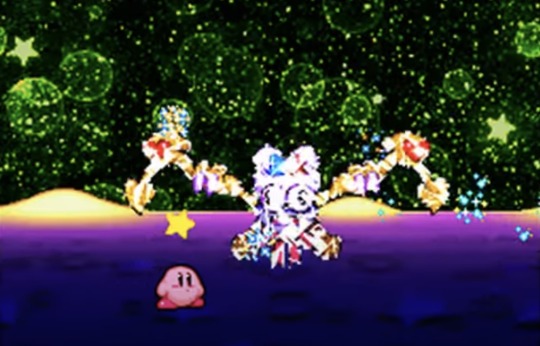
Again, I beg you to remember how the non-cutscene part of the fight ends. Marx stops for just a second mid-air, looking like he's covered in electricity, before his wings cast off stars and start to malfunction, send him rocketing off the screen in the wrong direction. He leaves the surface of the moon (4) while his wings continue to carry him further and further away, out of control until he crashes into Nova.
You, Kirby, didn't technically "defeat" Marx. Like Magolor, who was modeled so closely on him, Marx was yet another victim of an Ancient Artifact going haywire.
And maybe more than we think?!
...But I'll talk about that in another essay I'm working on:
"Theme Parks, Mischief, and Corrupted Wishes"
--
(1) Marx says "Please forgive me!" or maybe "Pweeeeaswe forgive me" if we're going by intent. Basically, he says he's sorry, but the tone he takes makes it particularly snide + cutesy.
I chose "tricks" not mischief because Marx is very particularly speaking about teasing pranks and jokes. I feel like mischief could be read to mean more and the fact that Marx has such simple ambitions leads into the topic of my follow-up essay.
(2) I mentioned this in another post, but the text uses さっさとhere which ostensibly means "quickly" but is used to diminish the task in question. Kirby is treating stopping Marx not as a thing that needs to be rushed because everyone's in great danger but more like because its a nuisance and he needs to get his rest.
(3) They use "Milky Road" in Japanese, which is interesting because the space through Another Dimension is often called "Another Dimension Road." Using Milky Way implies Pop Star is in our universe, but that's what its localized as, so!
(4) Probably it's because of the hearts on his wings, but I've always wondered if Marx's defeat wasn't a subtle reference to Cars' defeat from Jojo's Bizarre Adventure. (Is that a MF Jojo's reference?! XD )
#Kirby#Marx#Marx Kirby#Dess Text Post#If everyone doesn't read this...#...I'm just going to restate it in another essay later XD#I feel that strongly about Marx's wings#Starting to think the wings are to Marx as the crown is to Magolor#Guess they both learned to use their powers?#RtDL DX spoilers
43 notes
·
View notes
Text
Thinking about class dynamics in the Crew of Light. Some of this is my own headcanon because we don’t have much confirmed information about Jonathan and Mina’s backgrounds
TL;DR: Jonathan and Mina’s lack of self-advocacy could be explained by the rest of the group’s relative superiority over them.
AKA: LET THE HARKERS SPEAK!!
Jonathan and Mina grew up parentless, their closest person to a living relative being Mr. Hawkins (I know we don’t explicitly get told Jonathan is an orphan, but his parents are never brought up, so I assume he and Mina are in the same boat.) I don’t know how early Hawkins came into the picture providing for them, but it is important to note he hadn’t officially adopted either of them until he was dying. They are well-off now because of Hawkins’ inheritance. Mina mentioning that implies they weren’t before.
Both of them refer to the rest of the group formally: Dr. Seward, Mr. Morris, Lord Godalming, Dr. Van Helsing/the Professor. In a way, it’s kind of implied that they both take a subordinate role in the group.
Jack refers to Jonathan as simply “Harker” and Mina “Mrs. Harker” to distinguish them. That’s a bit more formal than how he calls Arthur and Quincey by their names (later adjusting Arthur to Godalming bc of social rules :/) but it’s more like how you would refer to your coworkers.
There’s a sort of imbalance. I know Seward isn’t exactly a noble, but he does own and run a whole hospital, he’s gotta have cash. Quincey I'm not sure about, but considering he is best friends with an English lord, even if he’s got not a penny to his name, he skips the pleasantries (also the American character of course is not held to the same standards of etiquette as the rest). Arthur is a Lord. I don’t know Van Helsing’s socio-economic standing, but he’s older than all the rest of them and so receives the most reverence.
Seeing as the Harkers arrive late (and their relationship to Lucy is largely undermined by the suitors), no matter how much work they put in, they are not in the position to really fight on any big decisions. Van Helsing calls the shots, and Arthur and Seward are just naturally higher in rank than the Harkers. Quincey doesn’t talk much, but when he does, he’s acknowledged.
Jonathan and Mina have problems being open with the group. Quincey might not talk much, but they don’t talk at all. When Mina is left out, she bites her tongue and stays quiet for their sake (she looks to Jonathan, but Jonathan is worried for her safety as a man who has lived through the worst of it and doesn’t even know that this isn’t a relief to her). Then, later, both are left behind for a day, and when Van Helsing plans the chase after Dracula, he plans to leave them out for that, as well. Jonathan does not argue and only says he’ll talk it over with Mina, but he and Mina are both very much not content to be left behind when they, too, swore to kill Dracula.
But finally, it’s Mina to break the silence. All this time, the rest of the group, however passively, have been undermining the Harkers’s say over how they get to help. Jonathan was being left because Van Helsing decided Mina needs someone to guard her and her husband is the best choice, but also, Jonathan is just the easiest person for Van Helsing to dismiss. Jonathan’s suffering is distant, and in Van Helsing’s eyes, he’s cured already anyway. But he isn’t. He’s still having nightmares and he is the most vicious of their party when it comes to the Count - he wants vengeance. And while Mina’s suffering is recent, Van Helsing is satisfied with leaving her behind for about the same reasons as before: she’s a woman.
Meanwhile, he’s taking his merry band of men because the three suitors have proven themselves to him. They all witnessed Lucy, so they are worthy of killing the Count because they were all robbed of her sweetness (kinda :/ chauvinistic but).
We don’t know Jonathan’s relationship with Lucy (she refers to him by first name but whether that is personal closeness or closeness by proxy is up to headcanon [he would be invited to tea with the girls though, that’s important to note]), but we do know that Mina and Lucy were best friends. They were incredibly close and Mina was so competent with keeping Lucy safe that Jack remarks if she and Jonathan were in London, Lucy might not have died. Arthur acknowledges Mina’s love for Lucy as he does Jack’s and Quincey’s, but his hurt takes priority over Mina’s in that scene. Mina is not permitted to avenge Lucy or her husband or even herself because she is a woman, and for so long, she and Jonathan did not contest it because they didn’t feel like they could speak up.
No matter how much camaraderie develops in the Crew of Light, it always reads as two teams smushed together. Van Helsing and the suitors might know the Harkers from the journals and letters and a few interactions that exemplified their strong characters, but they don’t ever seem to truly understand them. Even till the very end.
#dracula#dracula daily#dracula rant#rant#is this a rant? it feels like an unplanned essay#jonathan harker#mina harker#mina murray#van helsing#abraham van helsing#the suitors as well? they are less focused upon#LET THE HARKERS SPEAK!
78 notes
·
View notes
Text
Leverage Redemption Pros/Cons List
Okay! Now that I've finally finished watching the first half of Leverage: Redemption, I thought I'd kind of sum up my overall impression. Sort of a pro/con list, except a little more just loosely structured rambles on each bullet point rather than a simple list.
This got way out of hand from what I expected so I'm going to put it all under a cut. If you want the actual bulletpoint list, here it is:
PROS
References
Continuity
Nate
Representation
Themes
New Characters
General Vibe
CONS
'Maker and Fixer'
Episode Twins
Sophie's Stagefright
Thiefsome
You might notice the pros list is longer, and that's because I do love the show! I really like most of what it does, and my gripes are fewer in number and mostly smaller in size. But they do exist and I felt like talking about them as well as the stuff I loved.
PROS
References
There is clearly so much love and respect for the original show here. Quite aside from the general situation, there's a lot of references to individual episodes or character traits from the first show. For example, Parker's comments on disliking clowns, liking puppets, disliking horses, stabbing vs. tasing people. The tasing was an ongoing thing in the original, the stabbing happened once (S1) but was referenced later in the original show, the clown thing only had a few mentions scattered across the entire original show. The puppet thing was mentioned once in S5, and the horses thing in particular was only brought up in S1 once. But they didn't miss the chance to put the nod to it in there; in fact with those alone we see a good mix of common/ongoing jokes and smaller details.
We got "dammit Hardison" and "it's a very distinctive..." but also Eliot and Parker arguing about him catering a mob wedding, and Eliot being delighted by lemon as a secret ingredient in a dish in that same episode (another reference to the mob episode). Hardison and Eliot banter about "plan M", an ongoing joke starting from the very first episode of the original show. We see Sophie bring up Hardison's accent in the Ice Job, Parker also makes reference to an early episode when describing "backlash effect" to Breanna, in an episode that also references her brother slightly if you look for it.
Heck, the last episode of these first eight makes a big deal out of nearly reproducing the iconic opening lines of the original show with Fake Nate's "we provide... an advantage." And I mean, all the "let's go steal a ___" with Harry being confused about how to use them.
Some of the lines are more obviously references to the original show, but they strike a decent balance with smaller or unspoken stuff as well, and also mix in some references between the team to events we the audience have never seen. If someone was coming into this show for the first time, they wouldn't get all the easter egg joy but most of the references would stand on their own as dialogue anyway. In general, I think they struck a good balance of restating needed context for new viewers while still having enough standalone good lines and more-fun-if-you-get-it callbacks.
Continuity
Similar to the last point, but slightly different. The characters' development from the original to now is shown so well. I'm not going to go on about this too long, but the writers clearly didn't want to let the original characters stagnate during the offscreen years. There was a lot of real thought put into how they would change or not.
It's really written well. We can see just how cohesive a team Parker, Hardison, and Eliot became. We get a sense of how they've spent their time, and there's plenty of evidence that they remained incredibly close with Sophie and Nate until this past year. The way everyone defers to Parker is different from the original show and clearly demonstrates how she's been well established as the leader for years now - they show this well even as Parker is stepping back to let Sophie take point in these episodes. Eventually that is actually called out by Sophie in the eighth episode, so we might see more mastermind Parker in the back half of the show, maybe. But even with her leading, it's clear how collaborative the team has become, with everyone bouncing ideas off one another and adding their input freely. Sometimes they even get so caught up they leave the newbies completely in the dust. But for the most part we get a good sense of how the Parker/Hardison/Eliot team worked with her having final say on plans but the others discussing everything together. A little bit more collaborative than it was with Nate at the helm.
Meanwhile Sophie has built a home and is deeply attached to it. She and Nate really did retire, at least for the most part, and she was living her happy ending until he died. She's out of practice but still as skilled as ever, and we're shown how much her grief has changed her and how concerned the others are for her.
There's a lot of emphasis on how they all look after one another and the found family is clearer than ever. Sophie even calls Hardison "his father's son" - clearly referring to Nate.
Nate
Speaking of Nate! They handled his loss so, so well. His story was the most complete at the end of the last show, and just from a narrative point, losing him makes the most sense of all the characters. But the way he dies and his impact on the show and the characters continues. It's very respectful to who he was - who he truly was.
Nate was someone they all loved, but he was a deeply flawed individual. Sophie talks about how he burned too hot, but at least he burned - possibly implying to me that his drinking was related to his death. In any case, there's no mystery to it. We don't know how he died but that's not what's most important about his death. This isn't a quest for revenge or anything... it's just a study of grief and trying to heal.
Back to who he really was real quick - the show doesn't eulogize him as better than he was. They're honest about him. From the first episode's toast they raise in his memory, to the final episode where Sophie and Eliot are deeply confused by Fake Nate singing his praises, the team knows who he was. They don't erase his flaws... but at the same time he was so clearly theirs. He was family, he was the man they trusted and loved and followed into incredibly dangerous situations, and whose loss they all still feel deeply.
That said, the show doesn't harp on this point. They reference him, but they don't overwhelm new viewers with a constant barrage of Nate talk. It always serves a purpose, primarily for Sophie's storyline of moving through her grief. Anyway, @robinasnyder said all of this way better than me here, so go read that as well.
Representation
Or should I say, Jewish Hardison, Autistic Parker, Queer Breanna!
Granted, Hardison's religion isn't quite explicitly stated to be Jewish so much as he mentions that his "Nana runs a multi-denominational household", but nonetheless. He gets the shows big thesis statement moment, he gets a beautiful speech about redemption that is the emotional cornerstone of that episode and probably Harry's entire arc throughout the show. And while I'm not Jewish myself, most of what I've seen from Jewish fans is saying that Hardison's words here were excellent representation of their beliefs. (@featherquillpen does a great job in that meta of contextualizing this with his depiction in the original show as well.)
Autistic Parker, however, is shown pretty dang blatantly. She already was very much coded as autistic in the original show, but the reboot has if anything gone further. She sees a child psychologist because she likes using puppets to represent emotions, she stims, she uses cue cards and pre-written scripts for social interactions, there's mention of possible texture sensitivity and her clothes are generally more loose and comfortable. She's gotten better at performing empathy and understanding how people typically work, but it's specifically described as something she learned how to do and she views her brain as being different from ones that work that way (same link). Again, not autistic myself but from what I've seen autistic fans find a lot to relate to in her portrayal. And best of all, this well-rounded and respectful depiction does not show any of these qualities as a lack on her part. There's no more of those kinda ableist comments or "what's wrong with you" jokes that were in the original show. Parker is the way she is, and that allows her to do things differently. She's loved for who she is, and any effort made to fit in is more just to know how so that she can use it to her advantage when she wants to on the job - for her convenience, not others' comfort.
Speaking of loved for who you are.... okay, again, queer Breanna isn't confirmed onscreen yet, and I don't count Word of God as true canon. But I can definitely believe we're building there. Breanna dresses in a very GNC way, and just her dialogue and, I dunno, vibes seem very queer to me. She has a beautiful speech in the Card Game Job about not belonging or being accepted and specifically mentions "the way they love" as one of those things that made her feel like she didn't belong. And that scene is given so much weight and respect. (Not to mention other hints throughout the episode about how much finding her own space meant to her.) Also, the whole theme of feeling rejected and the key for her to begin really flourishing is acceptance for who she is, not any desire for her to be anyone else, is made into another big moment. Yeah, textually that moment is about her feeling like she has to fill Hardison's shoes and worrying about her past, but the themes are there, man.
Themes
I talked a bit about this yesterday, so I'm mostly just going to link to that post, but... this series so far is doing a really good job in my opinion of giving people arcs and having some good themes. Namely the redemption one, from Hardison's speech (which I'm gonna talk a little more about in the next point), and this overall theme of growing up and looking to the future (from above the linked post).
New Characters
Harry and Breanna are fantastic characters. I was kind of worried about Harry being a replacement Nate, but... he really isn't. Sure, he's the older white guy who has an angsty past but it's in a very different way and his personality and relationships with the rest of the crew are correspondingly different. I think the dynamic of a very friendly, cheerful, kind, but still bad guy (as @soundsfaebutokay points out) is a great one to show, and he's got a really cool arc I think of learning to be a better person, and truly understanding Hardison's point about redemption being a process not a goal. His role on the team also has some interesting applications and drawbacks, as @allegorymetaphor talked about. I've kind of grown to think that the show is gradually building up to an eventual Sophie/Harry romance a ways down the line, and I'm actually here for it. Regardless, his relationships with everyone are really interesting.
As for Breanna, first of all and most importantly I love her. Secondly, I think she's got a really interesting story. She's a link to Hardison's past, and provides a really interesting perspective for us as someone younger who has grown up a) looking up to Leverage and b) in a bleaker and more hopeless world. Breanna's not an optimist, and she's not someone who was self-sufficient and unconcerned with the rest of the world at the start, like everyone else. She believes that the world sucks and she wants it to be better, but she doesn't know how to make that happen. She outright says she's desperate and that's why she's working with Leverage. At the same time, Breanna is pretty down on herself and wants to prove herself but gets easily shaken by mistakes or being scolded, which is a stark contrast to Hardison's general self-confidence. There are several times when she starts to have an idea then hesitates to share it, or expects her emotions to be dismissed, or gets really disheartened when she's corrected or rejected, or dwells on her mistakes, or when she is accepted or praised she usually takes a surprised beat and is shy about it (she almost always looks down and away from the person, and her smile is often small or startled). Breanna looks up to the team so much (Parker especially, then probably Eliot) and she wants to prove herself. It's going to be so good to see her grow.
General Vibe
A brief note, but it seems a fitting one to end on. The show keeps it's overall tone and feeling from the original show. The fun, the competency porn, the bad guys and clever plans and happy endings. It's got differences for sure, but the characters are recognizably themselves and the show as a whole is recognizably still Leverage. For the most part they just got the feeling right, and it's really nice.
CONS (no, not that kind)
'Maker and Fixer'
So when I started writing this meta earlier today, I was actually a lot more annoyed by the lack of unique 'maker' skills being shown by Breanna. Basically the only time she tries to use a drone, the very thing she introduced herself as being good at, it breaks instantly. I was concerned about her being relegated into just doing what Hardison did, instead of bringing her own stuff to the table. But the seventh episode eased some of those fears, and the meta I just wrote for someone else asking about Breanna's 'maker' skills as shown this season made me realize there's more nuance than that. I'd still like to have seen more of that from her, but for now the fact that we don't see a lot of 'maker' from her so far seems more like a character decision based in Breanna's insecurities.
Harry definitely gets more 'inside man' usage. His knowledge as a 'fixer' comes in handy several times. Nonetheless, I'm really curious if there are any bigger ways to use it, aside from him just adding in some exposition/insight from time to time. I'm not even entirely sure how much more they can pull from this premise in terms of relevant skills, but I hope there's more and I'd like to see it. Maybe a con built more around him playing a longer role playing his old self, like they tried in the Tower Job? Maybe it's more a matter of him needed distance from that part of his past, being unable to face it without lashing out - in that case it could be a good character growth moment possibly for him to succeed in being Scummy Lawyer again down the line? I dunno.
Episode Twins
This was something small that kind of bothered me a little earlier in the season. It's kind of the negative side to the references, I guess? And I'm not even sure how much it annoys me really, but I just kinda noticed and felt sort of weird about it.
Rollin' on the River has a lot of references/callbacks to the The Wedding Job.
The Tower Job has a lot of references/callbacks to The White Rabbit Job.
The Paranormal Hacktivity Job has a lot of references/callbacks to the Future Job.
I guess I was getting a little concerned that there would be a 'match this episode' situation where almost every new Redemption episode is very reminiscent of an old one. I love the callbacks, but I don't want to see a lack of creativity in this new show, and this worried me for a minute. Especially when it was combined with all three of those episodes dealing with housing issues of some kind. Now, that's a huge concern for a lot of people, and each episode has its own take on a different problem within that huge umbrella, but it still got me worried about a lack of variety in topics/cases.
The rest of the episodes failing to line up so neatly in my head with older episodes helped a lot to ease this one, though. Still, this is my complaining section so I figured I'd express my concerns as they were at the time. Even if I no longer really worry about it much.
Sophie's Stagefright
Yeah, I know this is just a small moment in a single episode, but it annoyed me! Eliot made a bit of a face at Sophie going onstage, but I thought it was just him being annoyed at the general situation. However, they started out with her being awful up there until she realized the poem was relevant to the con - at which point her reading got so much better.
This felt like a complete betrayal of Sophie's beautiful moment at the end of the original show where she got over her trouble with regular acting and played Lady Macbeth beautifully in front of a full theater of audience members. This was part of the con, but only in the sense that it gave her an alibi/place to hide, and I always interpreted it as her genuinely getting over her stagefright problems. It felt like such a beautiful place to end her arc for that show, especially after all her time spent directing.
Now, her difficulty onstage in the Card Game Job was brief and at the very beginning of being up on stage. @rinahale suggested to me that maybe it was a deliberate tactic to draw the guy's attention, and the later skill was simply her shifting focus to make the sonnet easier for Breanna to listen to and interpret, but he seemed more enraptured when she was doing well than otherwise in my opinion and it just doesn't quite sit well with me. My other theory was that maybe she just hasn't been up on stage in a long time, and much like she complaining about being rusty at grifting before the team pushed her into trying, she got nervous for a moment at the very beginning. The problem there is that I think she'd definitely still get involved in theater even when she and Nate were retired. I guess she could've quit after he died, and a year might be long enough to make her doubt herself again, but... still.
I just resent that they even left it ambiguous at all. Sophie's skills should be solid on stage at this point in my opinion.
Thiefsome
...And now we come to my main complaint. This is, by far, the biggest issue I have with the show.
I feel like I should put a disclaimer here that I had my doubts from the beginning about the thiefsome becoming canon onscreen. I thought the famous "the OT3 is safe" tweet could easily just mean that they are all still alive and well, or all still working together, without giving us confirmation of a romantic relationship. Despite this, the general fandom expectations/hopes really got to me, especially with the whole "lock/pick/key" thing. I tried to temper my expectations again when the character descriptions came out and only mentioned Hardison loving Parker, not Eliot, but I still got my hopes up.
The thing is, I was disappointed pretty quickly.
The very first episode told me that in all likelihood we would never see Hardison and Parker and Eliot together in a romantic sense. Oh, there was so much coding. So much hinting. So much in the way of conversations that were about Parker/Hardison's relationship but then Eliot kept getting brought into them. They were portrayed as a unit of three.
But then there was this.
I love all of those scenes of Parker and Hardison being intimate and loving and comfortable with one another and their relationship. I really do. But it didn't escape my notice that there's nothing of the sort with Eliot. If they wanted a canon onscreen thiefsome, it would by far make the most sense to just have it established from the start. But there aren't any scenes where Eliot shares the same kind of physical closeness with either of them like they do each other. Parker and Hardison kiss; he doesn't kiss anyone. They have several clearly romantic conversations when alone; he gets important conversations with both but the sense of it being romantic isn't there.
Establishing Eliot as part of the relationship after Hardison is gone just... doesn't make any sense. It would be more likely to confuse new viewers, to make them wonder if Parker is cheating on Hardison with Eliot, or if they have a Y shaped relationship rather that a triangle. It would be so much clumsier.
Still, up until the Double-Edged-Sword Job I believed the writers might keep it at this level of 'plausible hinting but not quite saying'. There's a lot of great stuff with all of them, and I never expecting making out or whatever anyway; a cheek-kiss was about the height of my hopes to be honest. I mostly just hoped for outright confirmation and, failing that, I was happy enough to have the many hints and implications.
But then Marshal Maria Shipp came along. And I don't really have anything against her as a character - in fact, I think she has interesting story potential and will definitely come back. But the episode framed her fight with Eliot as a sexyfight TM, much like his fight with Mikel back in the day. And then his flirting with her rode the line a little of "he's playing her for the con" and "he's genuinely flirting." The scene where he tells her his real name is particularly iffy, but actually was the one that convinced me he was playing her. Because he seems to be watching her really closely, and to be very concerned about her figuring out who he really is. I am very aware though that I'm doing a lot of work to interpret it the way I want. On surface appearance, Eliot's just flirting with an attractive woman, like he did on the last show. And that's probably the intention, too.
But the real nail in the coffin for me was when Sophie compared herself and Nate to Eliot and Maria. That was a genuine scene, not the continuation of the teasing from before. And Sophie is the one whose insight into people is always, always trustworthy. She is family to the thiefsome. For this to make any sense, either Eliot/Parker/Hardison isn't a thing, or they are and Sophie doesn't know - and I can't imagine why in the hell she wouldn't know.
Any argument to make them still canon leaves me unsatisfied. If she knows and they haven't admitted it to her - why wouldn't they, after all this time? Why would she not have picked up on it even without an outright announcement? Some people suggested they wouldn't admit it because they thought Nate would be weird about it, but that doesn't seem any more in character to me than the other possibilities. In fact, the only option that doesn't go against my understanding of these people and their observational abilities/the close relationship they share.... is that the thiefsome is not a thing.
And furthermore, the implication of this conversation - especially the way it ended, with Eliot stomping off looking embarrassed while Sophie smiled knowingly - is that Eliot will get into another relationship onscreen. Maybe not a full-blown romantic relationship. But the Maria Shipp tension is going to be resolved somehow, and at this point I'm half-expecting a hook-up simply because of Sophie's reaction and how much I trust her judgement of such things. Even if she's letting her grief cloud her usual perceptiveness... it feels iffy.
It just kinda feels like I wasn't even allowed to keep my "interpret these hints/maybe they are" thiefsome that I expected after the first couple episodes convinced me we wouldn't get outright confirmation. (I mean, I will anyway, and I love the hints and allusions regardless.) And while I'm definitely not the kind of fan who is dependent on canon for my ships, and still enjoy all their interactions/will keep right on headcanoning them all in a relationship, it's just.... a bummer.
Feels like a real cop-out. Like the hints of Breanna being queer are enough to meet their quota and they won't try anything 'risky' like a poly relationship. I dunno. It's annoying.
.
That's the end of the list! Again, overall I love the new show a lot and have few complaints.
#leverage#leverage redemption#leverage spoilers#leverage meta#my meta#this turned into a BIG ol ramble#i planned to write like a couple of sentences for each point but noooo
95 notes
·
View notes
Note
WERE YOU KIDDING ABOUT THE ASK GAME if not i dont have any specific lyrics in mind but i always thought the lyrics to the mill were so cool and maybe you could get some thoughts out of them? :0
YEAH GOD OKAY LET’S TALK ABOUT THE MILL. LET’S TALK ABOUT UHHHHHHHHH [THROWS DARTBOARD]

this line. this MIGHT go on for a while so i will............ readmore
so the mill feels kind of notably different to the rest of the pafl songs, which tend to be unusually literal for lyric, either straightforward retellings of events (punch it, punk!) or character piece monologues set to plot visuals (strike 3) or both (all of them, but for instance particularly comfort zone, which is just dmitry’s horrible manifesto until it gets hijacked by a death sentence in the second verse.) the mill is a lot more like what we expect from poetry these days, which is to say it’s heavy on imagery, low on clarity, and fucking confusing!
I’ll draw a circle in the sand, drive myself around the bend
in a desperate attempt to hold on to your battered hand
Rocked to sleep beneath the snow, she is bathed in youthful glow
‘Strong enough to let it go,’ he says, but darling, I don’t know
a lot of the mill is about circles. this is in the name: a mill is something which turns. a waterwheel is a circle, a grindstone is a circle. it’s even in the melody: the chorus is a cyclic, pentatonic four-note riff that keeps going up and down and up its own ladder, chasing its own tail, not really reaching resolution. and then it’s also in, you know, the story:
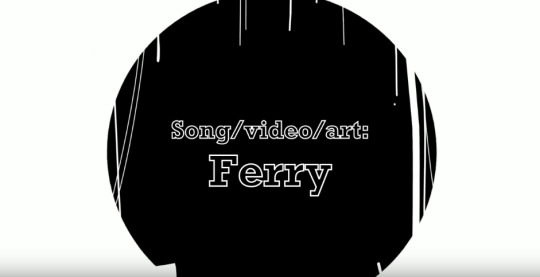


the meat grinder!!!! everyone’s favorite fucking hellhole!!!! it is only semi-explicitly identified in the song but that’s because it’s a concept from the source material - both tarkovsky’s stalker and roadside picnic feature the meat-grinder, as a location nicknamed thus by stalkers because it is even more fucking deadly than the rest of the zone, all of which is already ridiculously fucking deadly, and if you’ve seen the movie:

it is more or less instantly recognizable in the mill as well. so here we have a circle! here we have a mill (the title has about seventy double meanings but this is certainly one of them,) and as it turns out, this mill at least will absolutely kill you. and horribly too. interestingly though, in roadside picnic (the book) the meat-grinder is not a tunnel, and it’s not round - it’s just a nondescript patch of ground which will wring you out like a dishcloth and kill you extremely dead if you walk into it. on the other hand what we have in the book in terms of circles is the golden ball, which is the equivalent of the movie’s the room, which is, well,
in short both stories ultimately hinge upon the idea that there is a something in the zone which can give you your heart’s desire. anything you want. everything you want. whatever you want. it is infinitely powerful; it is infinitely capable. the catch is that it will only give you what you want. the catch is that giving you what you want is not the same as giving you what you are asking for. the other catch is that in both cases you have to get through the meat-grinder first.
(so, by the way, what the fuck, right? does pafl’s zone have a wish-granting factory? is it also behind the grinder? where were the original trio going when they got themselves fucked up? and did they get there?)
but the point is: the golden ball, the wish-granting factory, is also a circle. it’s just sort of a sphere. it’s a big round fuckin yellow thing. you know, sorta like:

which is THE ONLY TIME yellow is used in occam’s razor not counting the full-colour shots, and it drives me CRAZY, but it is also me going full conspiracy board so let’s not even worry about it. THE POINT IS.
the circle is the death-machine and the wish-machine. neither of these things are really.... very good. the circle, or at least the arc, is also very closely associated with death:

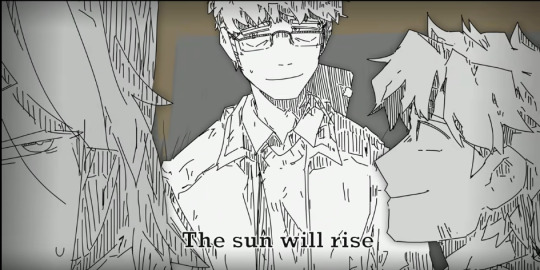

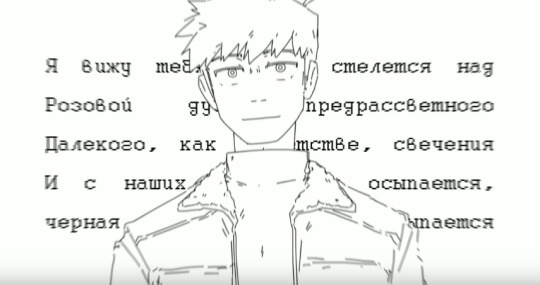
(розовая дуга предрассветного, ‘rose arc of pre-dawn’. if i’ve fucked up that nominative please feel free to stone me to death!)
in the gdoc notes to message lost ferry briefly refers to the dawn as if it were a good thing, the dawn of hope, which is a usage that sort of agrees with the desolate and deathless hope of strike 3′s ‘everything will pass / a day will come,’ but on the other hand it really is very closely associated with dying. nikolai bites it; nikita bites it; sergei and olga left significant chunks of themselves behind. and the thing about ‘this too shall pass’ is that it’s always true, as is ‘everything ends’, but of course that’s ‘cause the thing that ends might be you. and as we know

dawn is an ending. so that seems concerning!
i think the circle, the arc, the bolt falling back to the ground, is not a good thing. i am getting a little conspiracy board here in general but forgive me, i cannot make you a wholesome answer, my wit’s diseased. i think the circle is an enclosed space. it’s an unbroken cycle. it’s the grindstone. it’s the mill. it’s about what pafl’s always been about: about being trapped, about having no chances, about being bordered upon. the circle’s the geometric figure of equidistance from a given point, and you can walk on it forever, and nothing will ever change; you will never get closer, you will never get further away, you will never get out! the sun rises, the sun sets, and you are no closer to anything you wanted. it’s worth noting that anya’s borderline city, the zone-edge port town she complains is trying to crush all her dreams, her mill

is a circle. (a cog in a machine! a grind-wheel! a cage!)
and yura, whose dreams have already been burned out of him, who starts the series already resigned to never getting out of here, calls it ‘this dire deja-vu’, i am specifically resisting putting the accent marks back onto that, which is to say, it’s a repetition that haunts him. it’s going round and round and getting nowhere.

so if we bring it back around: drawing a line in the sand, as the phrase is generally used, means setting a border, means saying this far and no further. often it’s yourself you’re setting the border for. you hit some divide you can’t abide crossing so you say this stops here, it may be too early or too late, but i say it stops here. so logically: drawing a circle in the sand means you’ve locked yourself in completely.
I’ll draw a circle in the sand, drive myself around the bend
in a desperate attempt to hold your battered hand
the whole first half of this song, i think, is olga promising to grind herself down in a hundred ways if it means she won’t be left alone. how hard can it be to never let it overflow? she may feel lower than the low, she may wish she could just disappear out here, into the postindustrial rust, but though it gets harder all the time she will keep pretending. she isn’t going to burden sergei, or indeed anyone, with her problems, her fears, her scars. she is hurt, but she’s used to it, she’s gotten used to being haunted long ago. she keeps her bad eye covered. she stays within her circle she has drawn. she keeps going round and round. she will take the smallest sliver of human connection and be happy, she promises she will be happy, she promises she won’t ask for more, she will take just the ‘hello.’
but you knooooow it’s not true. you know it’s grinding her down, that she’ll be milled to nothing pretty soon, and really she knows it too.
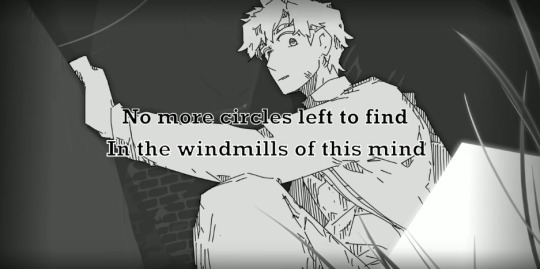
i am perhaps seventy percent sure that this line is a reference to the windmills of your mind by michel legrande, which features such lines as
Like a tunnel that you follow to a tunnel of its own
Down a hollow to a cavern where the sun has never shone
Like the circles that you find in the windmills of your mind
which on one hand seems sort of obscure to be a purposeful reference but on the other hand would be a hell of a coincidence if it wasn’t, wouldn’t it. either way it characterizes circles ambiguously, but definitely unsettlingly. going around in circles is chasing infinity, but what in god’s name would you do with it if you caught it? what are you even hoping to accomplish? and:
the second half of this song is bitterer, sharper - staring down the mouth of the meat-grinder she’s a little more willing to admit to herself that this is going nowhere. she is running out of cages to keep herself in. she is very tired. it’s easy to say why don’t you leave it all behind, it’s easy to say, she’s strong enough to let it go, it’s easy to say, too strong to die. it is a lot harder to actually live.
this is also where the flashbacks admit to us how badly hurt they really were - sergei with his whole side in shreds, she still hides her eye but at least we get to see it’s bleeding. this moral compass is forever misaligned, she says, so there is damage, and it is lasting. and she can’t settle for hello, she can’t live like this, she needs someone by her side. the trouble is whether she can believe she has any hope of getting that
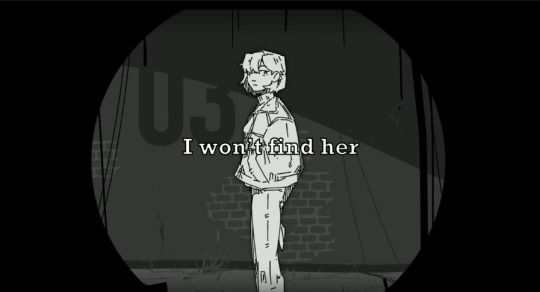
as for who ‘her’ is, or the ‘she’ of ‘she is bathed in youthful glow’, i figure there’s two possibilities: either it’s nadya, who haunts olga too, because nikita’s abandonment of nadya represents exactly what she most fears for herself, or it’s olga’s younger, unbroken, binocular self - both of whom were so young, and so easily hurt, and are now unfindable.
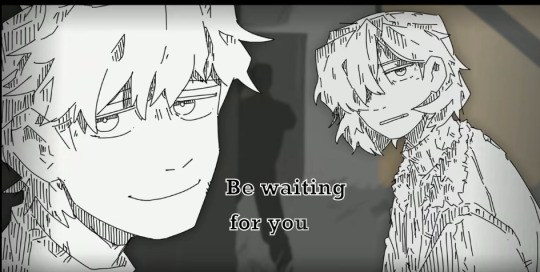
and then there’s this conclusion: ‘the sun will rise, until then / i’ll be waiting for you on the other side.’ which maybe is a sort of hope after all? she’s reached no real conclusions in the zone - she knows there must be hope but she can only barely believe in it - she thinks she is destined to self-destruct. but on the other hand she still has that, a version of sergei’s own ‘a day will come’
you may be hurt, but if you can hold yourself together, you can hope for a dawn someday. an ending. a change. but the trouble’s that there’s more than one kind of ending. and there’s more than one meaning for other side. there are cages, and then there are cages. and you know what else looks like a tunnel, a circle?
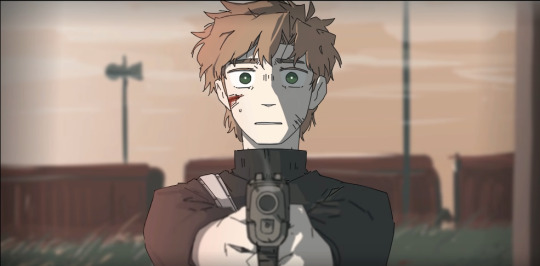
staring down the barrel of the gun.
#pafl#parties are for losers#it speaks#ask#in all fairness and in my defence when i made the joke i said i would write not less than one thousand words and by fuck#this has not been less than one thousand words!#jorgyjuice#THANK YOU FOR THE ASK ALSO THIS WAS REALLY FUN#and thank you VERY dearly to anyone who takes the time to read all this; you own my soul now; feel free to collect at any time#metatext
65 notes
·
View notes
Note
I’m just really confused as to where this idea that Zuko is gaycoded came from. Like people are allowed to have that headcanon but I don’t understand where people are coming from when they try and claim that he was undisputedly gaycoded and trying to deny it is homophobic when he’s only ever shown romantic interest in women.
I made a pretty long post on the topic a while back, but the ultimate gist of it is this: there are a lot of elements of Zuko's status as an abuse victim and trauma survivor that resonate with queer folks. This is understandable and completely fine! However, there are some parts of the fandom who have taken that to the other extreme and will now insist that those elements are uniquely queer, and that they can only be read as some sort of veiled gay/coming out narrative, even though that doesn't make much sense since there is no part of Zuko's narrative which is unique to any sort of queer experience.
I think the problem really does stem from two things being conflated--Zuko's history of abuse and trauma, and trauma&abuse being something a lot of queer people have experienced. I suspect it goes something like 'I see a lot of myself in Zuko, and I was abused for being gay, therefore Zuko must be gay too in order to have had similar experiences.' This can then lead to feeling dismissed or invalidated when other people point out that those experiences are not unique to being queer--but on the flip side, abuse victims and trauma survivors whose abuse&trauma do not stem from queerness (even if they are queer themselves) can feel invalidated and dismissed by the implication that their trauma must be connected to their queerness or it isn't valid.
This is also where the 'people don't actually know what gay coded means' part comes in, and I realize now that I didn't actually get into what gay coding (and queer coding in general) actually means, since I was so hung up on pointing out how Zuko doesn't really fit the mold. (And the few elements that exist which could be said to count are because of the 'villains historically get queer coded bc Hays Code era' thing and mostly occur in Book 1, not because of how he acts as an abuse&trauma survivor.)
Under a cut because I kind of go on a tangent about gay/queer coding, but I swear I get back to the point eventually.
Queer coding (and it is notable that, with respect to Zuko, it is almost always framed as 'he couldn't possibly be attracted to girls', rather than 'he could be attracted to boys as well as girls' in these discussions, for... no real discernible reason, but I'll get into that in a bit) is the practice of giving characters 'stereotypically queer' traits and characteristics to 'slide them under the radar' in an era where having explicitly queer characters on screen was not allowed, unless they were evil or otherwise narratively punished for their queerness. (See: the extant history of villains being queer-coded, because if they were Evil then it was ok to make them 'look gay', since the story wasn't going to be rewarding their queerness and making audiences think it was in any way OK.) This is thanks to the Motion Picture Production Code (colloquially and more popularly known as the Hays Code), which was a set of guidelines which movies coming out of any major studio had to adhere to in order to be slated for public release and lasted from the early 1930s until it was finally abandoned in the late 60s.
The Hays Code essentially existed to ensure that the content of major motion pictures would not 'lower the moral standards' of the viewing public. It didn't just have to do with queerness--cursing was heavily monitored, sex outside of marriage was not allowed to be seen as desirable or tittilating, miscegenation was not allowed (most specifically interracial relationships between black and white people), criminals had to be punished lest the audience think that it was ok to be gay and do crime, etc. Since same-sex relations fell under 'sexual perversion', they could not be shown unless the 'perversion' were punished in some way. (This is also the origin of the Bury Your Gays trope, another term that is widely misunderstood and misapplied today.) To get around this, queer coding became the practice by which movies and television could depict queer people but not really, and it also became customary to give villains this coding even more overtly, since they would get punished by the end of the film or series anyway and there was nothing to lose by making them flamboyant and racy/overly sexual/promiscuous.
Over time, this practice of making villains flamboyant, sexually aggressive, &etc became somewhat separated from its origins in queer coding, by which I mean that these traits and tropes became the go-to for villains even when the creator had no real intention of making them seem queer. This is how you generally get unintentional queer-coding--because these traits that have been given to villains for decades have roots in coding, but people tend to go right to them when it comes to creating their villains without considering where they came from.
Even after the Hays Code was abandoned, the sentiments and practices remained. Having queer characters who weren't punished by the narrative for being queer was exceptionally rare, and it really isn't until the last fifteen or so years that we've seen any pushback against that. Buffy the Vampire Slayer is famous for being one of the first shows on primetime television to feature an explicitly gay relationship on-screen, and that relationship ended in one of the most painful instances of Bury Your Gays that I have ever personally witnessed. (Something that, fourteen years later, The 100 would visually and textually reference with Lexa's death. Getting hit by a bullet intended for someone else after a night of finally getting to be happy and have sex with her s/o? It wasn't remotely subtle. I don't even like Clexa, but that was incredibly rough to witness.)
However, bringing this back to Zuko, he really doesn't fit the criteria for queer coding for a number of reasons. First of all, no one behind the scenes (mostly a bunch of cishet men) was at all intending to include queer rep in the show. This wasn't a case where they were like 'well, we really wanted to make Zuko gay, but we couldn't get that past the censors, so here are a few winks and a nudge', because it just wasn't on their radar at all. Which makes sense--it wasn't on most radars in that era of children's programming. This isn't really an indictment, it's just a fact of the time--in the mid/late 00s, no one was really thinking about putting queer characters in children's cartoons. People were barely beginning to include them in more teen- and adult-oriented television and movies. It just wasn't something that a couple of straight men, who were creating a fantasy series aimed at young kids, were going to think about.
What few instances you can point to from the series where Zuko might be considered to exhibit coding largely happen in Book 1, when he was a villain, because the writers were drawing from typically villainous traits that had historically come from queer coding villains and had since passed into common usage as villainous traits. But they weren't done with any intention of making it seem like Zuko might be attracted to boys.
And, again, what people actually point to as 'evidence' of Zuko being queer-coded--his awkwardness on his date with Jin and his confrontation with Ozai being the big ones I can think of off the top of my head--are actually just... traits that come from his history of trauma and abuse.
As I said in that old post:
making [zuko’s confrontation of ozai] about zuko being gay and rejecting ozai’s homophobia, rather than zuko learning fundamental truths about the world and about his home and about how there was something deeply wrong with his nation that needed to be fixed in order for the world to heal (and, no, ‘homophobia’ is not the answer to ‘what is wrong with the fire nation’, i’m still fucking pissed at bryke about that), misses the entire point of his character arc. this is the culmination of zuko realizing that he should never have had to earn his father’s love, because that should have been unconditional from the start. this is zuko realizing that he was not at fault for his father’s abuse--that speaking out of turn in a war meeting in no way justified fighting a duel with a child.
is that first realization (that a parent’s love should be unconditional, and if it isn’t, then that is the parent’s fault and not the child’s) something that queer kids in homophobic households/families can relate to? of course it is. but it’s also something that every other abused kid, straight kids and even queer kids who were abused for other reasons before they even knew they were anything other than cishet, can relate to as well. in that respect, it is not a uniquely queer experience, nor is it a uniquely queer story, and zuko not being attracted to girls (which is what a lot of it seems to boil down to, at the end of the day--cutting down zuko’s potential ships so that only zukka and a few far more niche ships are left standing) is not necessary to his character arc. nor does it particularly make sense.
And, regarding his date with Jin:
(and before anyone brings up his date with jin--a) he enjoyed it when she kissed him, and b) he was a traumatized, abused child going out on a first date. of course he was fucking awkward. have you ever met a teenage boy????)
Zuko is socially awkward and maladjusted because he was abused by his father as a child and has trouble relating to people as a result. He was heavily traumatized and brutally physically injured as a teenager, and it took him years to begin to truly recover from the scars that left on his psyche (and it's highly likely, despite the strides he made in canon, that he has a long way to go, post series; it's such a pity that we never got any continuation comics >.>). He was not abused for being gay or queer--he was abused because his father believed he was weak, and part of Zuko's journey was realizing that his father's perception of strength was flawed at its core. That his entire nation had rotted from the inside out, and the regime needed to be changed in order for the world--including his people--to begin to heal.
That could be commingled with a coming out narrative, which is completely fine for headcanons (although I personally prefer not to, because, again, we have more than enough queer trauma already), but it simply doesn't exist in canon. Zuko was not abused or traumatized for being queer, and his confrontation with Ozai was not about him coming out or realizing any fundamental truth about himself--it was about realizing something fundamental about his father and his nation, and making the choice to leave them behind so that he could help the Avatar grow stronger and force things to change when he got back.
TL;DR: at the end of the day, none of the traits, scenes, or behavior Zuko exhibits which shippers tend to use to claim he was gay-coded are actually evidence of coding--they aren't uniquely queer experiences, as they stem from abuse that was not related in any way to his sexuality, and they are experiences that any kid who suffered similar abuse or trauma could recognize and resonate with. (Including straight kids, and queer kids who were abused for any reason other than their identity.) And, finally, Zuko can be queer without erasing or invalidating his canon attraction to girls, and it's endlessly frustrating that the 'Zuko is gay-coded' crowd refuses to acknowledge that.
133 notes
·
View notes
Note
I’m obviously late to the tumble party... but I stumbled across your Notagami Essays posts and they are absolutely Fabulous! Love your writing and the amount of detail you go into :)
So I figured you may be a good person to ask - if you just had to guess (bc as far as I know it’s never been officially confirmed?) but if you had to take a guess or give a rough estimate, how old do you think Yato was when he first met Sakura? We know he’s estimated to be at least a thousand years old, we know he’s - from the start of the series to present - estimated to be somewhere between 18 and his early 20s (physically)... but I can’t find a single thing/discussion/post/stickynote/whatever where it talks about how old he might have been when he first met Sakura - let alone the emotional/psychological effects of Sakura coming into his life and introducing healthy mindset/morals/maternal-influence etc. etc. (obviously no mom and Father’s neglect played a big role in him not knowing how inappropriate it was for him to ‘accidentally touch’ and yell “boobs!” but you can also just say he was so young he didn’t know how inappropriate that was?) My point is: how old do you think Yato was (physically anyway) at the time of their meeting? and Do you know of any discussions or care to share your opinion on how being the no more than the age of blank affected his mental/emotional understanding of Sakura teaching him a new narrative?
Sorry this is a random out of the blue ask 😅😓 if I rambled on and you don’t feel like answering, I get it, just figured it was worth asking :)
I fell down a serious rabbit hole trying to see if I could figure out the answer to this question about Yato’s age but unfortunately I’m mostly coming up empty-handed.
The answer to this question actually depends on two different pieces of information which--as far as I can remember--we’ve never actually been given for certain.
1) We would need to know when Yato was actually born.
The manga has kind of hinted at a total (not physical) age for Yato in the flashbacks which showed him as a young child during the Heian era (putting him somewhere in the vicinity of a little over 1000 years old) and Father not making masks before ~1100 years ago, but the problem is we still don’t know how many years might have passed between this scene (the youngest we’ve ever seen Yato):
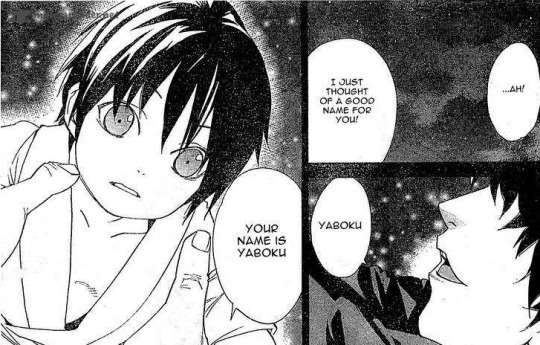
And the next flashback scene, where Yato meets Nora:
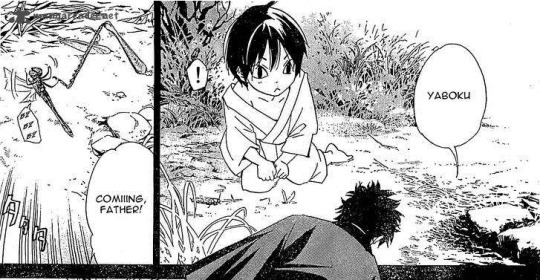
If gods age normally when they are children, these two scenes might be only a handful of years apart. But if gods don’t age normally, then these two scenes could be decades or centuries apart, which leads to the other missing piece of information (under the read more to save people’s dashes):
2) We would need to know the aging process for gods who are just born/reincarnate.
Up to this point in the manga, we’ve only seen two gods reincarnate--Ebisu (who reincarnated too recently to really help answer this question) and Takemikazuchi. The implication of Takemikazuchi’s backstory is that his shinki forced him to reincarnate and then hid his reincarnation from all of Heaven. The only way they could have kept other gods from noticing that Takemikazuchi had reincarnated would have been by not allowing him to go out at all until he had grown enough to match his previous reincarnation in appearance. This seems to suggest that gods probably do age normally when they are children--hiding Takemikazuchi away for ~20 years seems a lot more likely than being able to hide him away for centuries, after all... (I also feel like I have very vague recollection of some scene in the manga where someone comments on Takemikazuchi not having been around for a “few years,” but it’s been so long since I reread I can’t recall if this is a real moment from the manga or just me misremembering.)
Overall, however, based on what we’ve seen in the manga, my guess would be that when they’re young, after just being born or being reincarnated, gods age pretty normally. This would suggest that, for the first few years at least, the physical and mental ages of reincarnated/newly born gods actually overlap; baby Ebisu acts like a little kid because he is, in fact, both mentally and physically a little kid.
That would mean that, for all intents and purposes, Yato’s physical and mental ages lined up when he was young and meeting Sakura, and he acted like a little kid because he really was just a little kid, god or not.
(Detour for a second though:
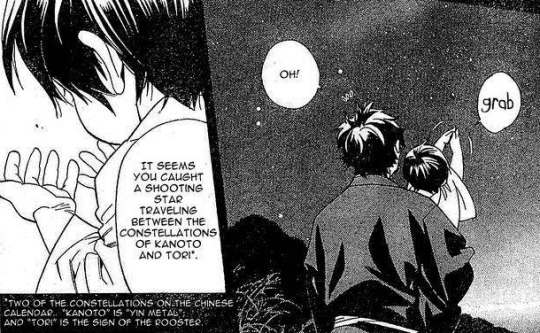
This line always struck me as interesting in that it might, just might, give us a more specific timeframe for Yato’s “birth”: although the constellations, of course, are visible in the sky every single year, this particular combination of concepts (kanoto-tori, yin metal rooster) is known much more commonly as one of the sixty years on the cyclical Chinese calendar, also used in Japan. Counting back on the calendar, 961 A.D. was a yin metal rooster year and would align just about right for what we know about the timeframe in which Yato later met Sakura (~970ish). Just referencing constellations doesn’t mean Adachitoka was pointing to a specific year, but it might have been another hint as to the timeframe of the flashbacks.
Okay, detour over.)
Anyway, without 100% confirmation on either of those pieces of information--when Yato was born and whether gods age at the same rate as humans after reincarnating--I don’t think it’s really possible to pin down Yato’s “real” age (physically or mentally) at the time he met Sakura. We mostly just have to estimate.
Personally, based on his size and behavior at the time, I’d put him somewhere between seven and maybe up to ten, but the way Adachitoka draws characters kind of makes it impossible to judge their ages by appearance; Yato is about the same size as Nora when he meets Sakura, implying that he and Nora were around the same physical “age” at that time; meanwhile, Nora is later portrayed as being roughly the same age as Yukine, suggesting she was maybe 12-13ish years old when she died. So, despite being drawn tiny, it’s possible Yato was meant to be anywhere from a little kiddo (6-7) to all the way up to Nora’s age by the time he met Sakura.
But all that said, I think what you were really asking about was more the mental state Yato would have been in when he met Sakura and how his young age would have impacted his ability to change his world views, right? The answer to that is... complicated and could be approached a lot of ways. Coming from a background of working with and educating social work students, there are several common psychological theories of child development that might apply here, for example.
I’d recommend checking out Erik Erikson’s psychosocial stages of development, though.
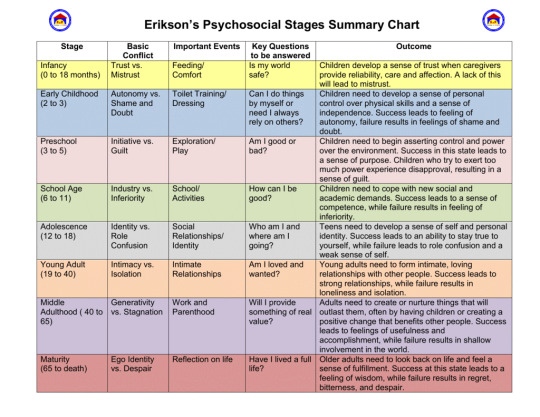
(Pulled from here.)
I don’t have time to explain the entire theory with the complexity it might deserve, but the basic idea is that, as children develop, they experience a series of crises or challenges that they must overcome. Successfully overcoming each challenge results in successful psychological and social development; failing to overcome a challenge in childhood will result in long-term negative impacts later in the child’s life. (There are plenty critiques of this theory too, so don’t take this as gospel or anything--just a theory worth thinking about!)
Given Father’s lack of interest in teaching Yato basic concepts of humanity, I would put Yato at approximately the “Initiative vs. Guilt” stage when he met Sakura. At this level of Erikson’s theory, children struggle with asserting themselves and developing a healthy sense of how their personal desires might conflict with the expectations and rules set out by others. In this stage, giving a child positive feedback for their actions teaches the child that those actions are “right,” while giving negative feedback teaching the child that their actions are wrong. In order to overcome this particular challenge, children need to begin taking initiative and aligning their actions with social standards; the child acts, and the parental figure reacts--through this process, children learn “I can do X thing but I cannot do Y thing.”
When you hear things like “Children are cruel,” most often what people are referring to is that it takes time for children to learn empathy and to experience guilt when they cause harm to others; children do not natively understand the repercussions of their actions. It’s only through a process of testing the boundaries, of receiving praise or punishment, that children define what is “right” versus “wrong,” and begin to feel bad when they do something deemed wrong.
And this is pretty much word-for-word what we see Sakura teaching Yato.
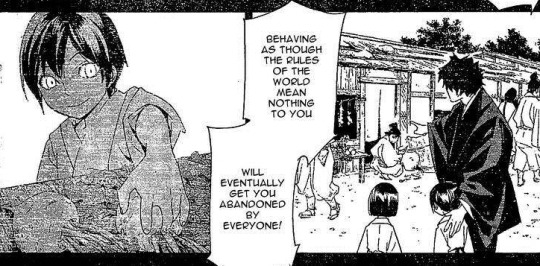
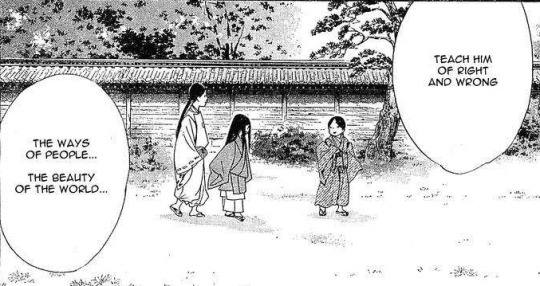
If they have healthy role models and caretakers during this phase, children develop successfully. Successful children in this phase get their first taste of personal responsibility; unsuccessful children are (supposedly) plagued for years afterward by a sense of guilt and shame when their actions produce disapproval from everyone around them.
Yato... doesn’t exactly make it through this development stage unscathed, because he receives conflicting definitions of right and wrong from his Father an Sakura:
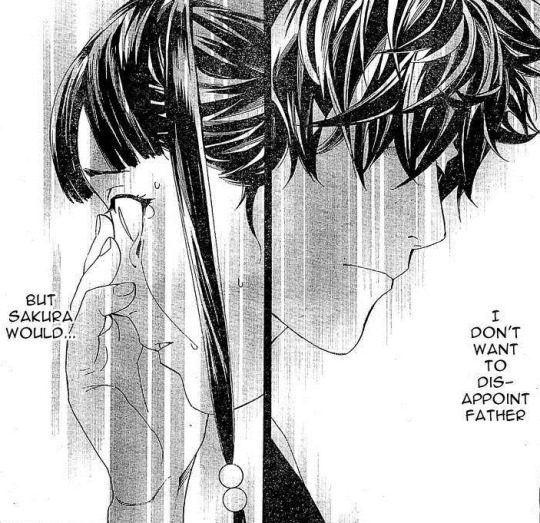
Which ultimately results in, years later, the Yato we know and love who still does his Father’s bidding to kill humans even though it fills him with a horrific sense of guilt:
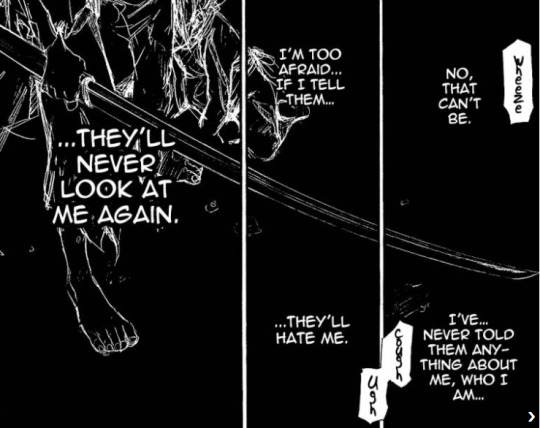
Through his time with Sakura, I think it could also be argued that Yato moves into the next stage of Erikson’s theory as well, getting into the “Industry versus Inferiority” crises.
Meeting Sakura brings out Yato’s true, deep down desire as a god: to help people. (I think it’s important to note that this isn’t something Sakura teaches him--it’s a quality Yato already possessed; it was explicitly Yato’s desire to please people that led to him murdering in his father’s name.)
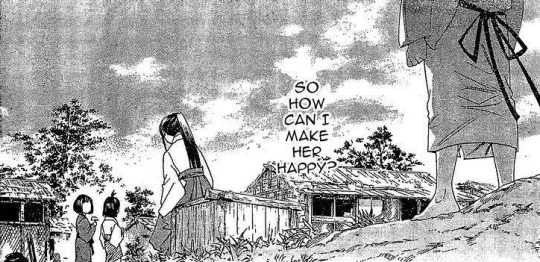
Once he learns what makes people happy, Yato immediately pursues that with intense focus:
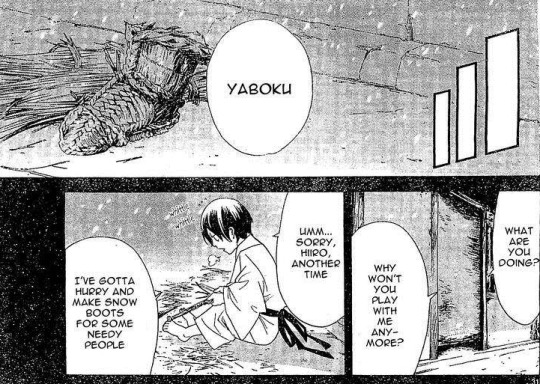
The primary goal of this phase of psychosocial development is to experience a sense of confidence in one’s actions. When children practice their skills, pursue areas where they are praised, and gain new skills and aptitudes through mentoring from healthy role models, they gain confidence in their ability to excel, to fit in with peers their age, and to create meaningful things. By encouraging Yato to pursue positive behaviors--playing peacefully with other children, appreciating natural beauty, and creating useful things like boots for the needy--Sakura moved Yato toward successfully completing this phase and developing a sense of confidence in his actions and his ability to achieve positive things in the world.
Of course, Father cannot have that (because confident children with a sense of self-worth are much more difficult to abuse), so he puts an immediate end to Sakura’s influence over Yato in the most insidious way possible: although he clearly manipulated the situation to achieve Sakura’s death, out loud, he blames Yato, implying that Sakura’s death was all Yato’s fault, the results of Yato taking unwanted action “industry” and yet failing--creating a sense of “inferiority” instead.
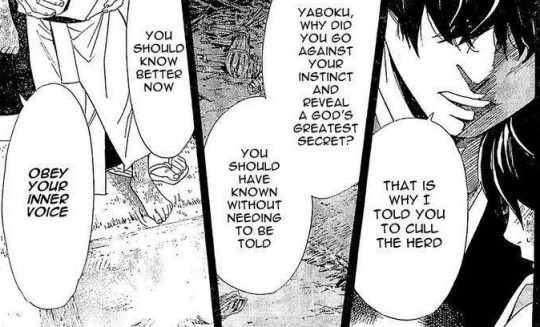
This, of course, haunts Yato all the way to the present, as he--again and again and again--blames himself for things outside his control or failing to live up to expectations that no one in his situation (still being manipulated) could possibly hope to get “right.”
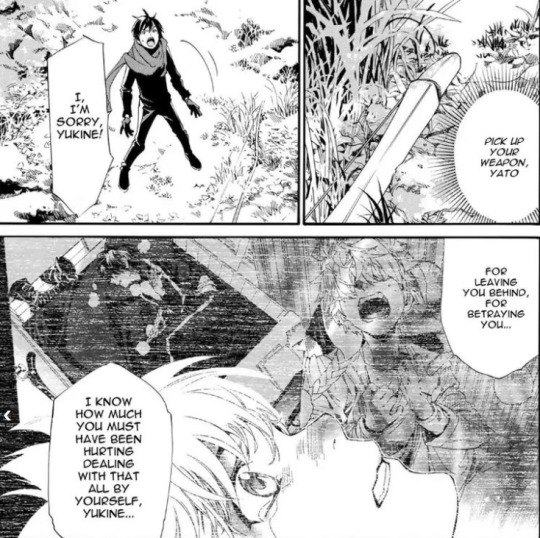
Finally, you could say that Sakura’s presence is Yato’s life is ultimately what sows the seeds of the manga’s main plot up to this point, with Yato’s quest to create an entirely new identity for himself as a god of fortune instead of a god of calamity. Personally, I would say that Yato is currently still in this phase of development, still working out how to define himself and who he will ultimately become once he is finally free to decide on his own path in life. It was Sakura’s gentle influence--his desire to become the kind of god who could make her smile--that eventually sparked his conflict and finally led Yato to the brink of catastrophe. If he wishes to become the god Sakura told him he could be, he can no longer suffer his father to live.
So, long story longer, I think it can be argued that Yato meeting Sakura at such a young age is EXACTLY what made it possible for him to change, and exactly what has led to his crisis in identifying himself and redefining his sense of right and wrong.
Uhhhh... I hope that answers your question!
#noragami#noragami meta#noragami spoilers#noragami manga#psychosocial development#Yato#Sakura#Father (Noragami)#speculation
91 notes
·
View notes
Note
The Lisa Robinson reference to Paul was a pretty obvious joke. A lot of that interview was trolly.
Anon is referring to the Hit Parader ‘75 John Lennon interview with Lisa Robinson, where we get the following exchange:
JOHN: "Yes, all your best friends let you know what's going on. I was trying to put it 'round that I was gay, you know-- I thought that would throw them off... dancing at all the gay clubs in Los Angeles, flirting with the boys... but it never got off the ground."
Q: "I think I've only heard that lately about Paul."
JOHN: "Oh, I've had him, he's no good."
(laughter)
You know, this is one where I really wish I could find audio (if anyone has it, I’d love a link!). It does seem somewhat incredible that Robinson is discussing this rumor in a serious way in a major magazine. However, if she’s joking here, it looks like this is the only joking question in the interview (not that it’s impossible to have a mostly serious interview with one joke question). John jokes a few times (like in his response to this question), but the interview read as pretty serious on the whole, and, imo, nothing other than wondering “would they seriously print a non-joke about this?” marks it as possibly being a joke.
John’s discussion of his immigration status, relationship with George and Paul and Ringo, the price of fame, etc. seems pretty earnest for the most part with a few jokes sprinkled in. I hadn’t read the whole thing until recently, but it’s here and really interesting (I had no idea John had ever said this, for example: “I'm not really interested if I get knighted when I'm seventy. I'll deal with it when it comes. I want it now-- not the knighthood-- I'll take the green card, and a passport, and the cash I earn in the band in my own name. And I'll let my music, or my art, speak for me. If they give me knighthood at age 70 I'll deal with it then. Sir John...")
But! Back to the “rumors about Paul” material. @monkberries suggests 3 compelling possibilities here: “1) there were actual rumors about men [Paul] had had sex with, 2) there were rumors but only because of his looks/mannerisms (standard homophobia) or 3) the interviewer made it up to have something for john to bounce off of”
There’s evidence for option 2 around (i.e. Tony Sheridan’s assumptions about Paul based on stuff like his eyebrows).
And then there’s also Francie Schwartz’s (unreliable) Body Count, which came out in ‘72. In it, she says this about Paul’s marriage to Linda: “This was the third time. He had to make it work, or else he’d go raving queer and kill himself” (92). I think it’s possible some readers would have read “queer” there as referring to sexual orientation (whether Francie intended for it to be read that way in addition to the main intended meaning here idk), and there may have been rumors that sprung up based on that--especially since Francie also apparently suggested she’d found a love letter to Paul from Brian on rec.music.beatles when the internet became a thing. She may have shared this story before the internet age too (I’m not suggesting that Francie is a reliable source--her credibility is seriously questionable--but what she wrote and may have said back then could have served as a basis for rumors. I’d like to find out more about it, as well as the post she wrote--I’ll add it if I find it in the archives). And in terms of “Brian being in love with Paul,” we also have the ‘80 Sheff interview where he asks John about Brian’s having been in love with Paul. Apparently this was a claim that was circulating in “biographies” according to the clip (I’d really love to know where Sheff was getting this from since I didn’t see this in Body Count--though please let me know if I missed it!). It doesn’t look like anyone suggested that Paul had also been in love with or had had a sexual relationship with Brian, but it’s possible, especially given monkberries’ option 2, that people speculated about it.
Then there’s option 3, where Robinson may not have been aware of any rumors about Paul or Paul and Brian and just wanted to jokingly pit Paul against John to see what he’d say about Paul and/or himself. This is a very real possibility, though it’s also possible that Robinson had heard some rumors and used the cover of a joke to see what kind of response she’d get from John. If she was aware of it (and I don’t think there’s evidence she was--I’m very much speculating), she may also have been thinking it would be an interesting question to ask given John’s very jokey ‘74 self-interview where he asks himself about rumors about the nature of his relationship with Paul.
Just in terms of other rumors that were possibly out there that might have made *readers,* especially in the industry or who knew people at Apple, take the “I think I’ve only heard that about Paul” remark seriously (and this would have been something that involved John as well, so Robinson wouldn’t have been seriously saying she’d only heard it about Paul), McCabe and Schonfeld’s ‘72 Apple to the Core appears to include a reference to the “John’s Princess” nickname that Philip Norman (and Yoko Ono) claim had been used to refer to Paul. McCabe and Schonfeld write: “With Yoko present, Paul McCartney’s reign as Lennon’s princess was doomed” (thanks for finding it, @james-winston ) While they don’t explicitly say that this is a nickname or that it’s linked to the desire for a sexual relationship, it sounds, as monkberries says in this post, “like a specific enough turn of phrase that mccabe/schonfeld might have heard someone say it.” And Norman, in his John bio, does explicitly say “John’s Princess” was a nickname for Paul that was linked to what people saw as John’s sexual desire for Paul (though he and Yoko suggest that the desire was only on John’s part). So, if it is the case that people around Apple were characterizing Paul in relation to John as being his “princess” and linking it, at least in part, to the idea that John desired Paul sexually, then it’s possible that, even if McCabe and Schonfeld didn’t say so in print and those around Apple didn’t either, there were rumors/speculation based on their relationship in the industry and some might have taken what could have been a joke question in the Robinson question seriously.
That...got seriously long and there’s a lot we just don’t have answers to (and may never have answers to), but that question in Hit Parader is fascinating to think about in terms of not only what rumors Robinson may or may not have heard but how different readers might have taken it as well.
#anon#john and paul#paul and brian#omg this is an essay but it's a lot of material in one place?#which is good?#maybe?
24 notes
·
View notes
Text
Family Matters | Chapter 4: Saying Sorry is a Virtue
Hello my beautiful souls!!
I hope this of you who celebrate Christmas had and amazing time, and those if you who don't had a great Friday!
I had a really chill holiday, and although I was supposed to be home and that didn't happen, I'm still glad I had a good time. I got a watch for Christmas and I'm obsessed!!
Anyway, I also wanted to let you guys know I'll be posting the story on Wattpad, and thanks to @meowiemari I also have a cover. I have attached it below! My wattpad user is @criminalminds4days so feel free to follow and read along!
Anyway, I hope you like this chapter. It's one of my favorites. 💙💙
Warnings: Swearing, sexual references, violence and murder references, public embarrassment, and very bad jokes!
Word Count: 3.6k
Previous Chapter | Next Chapter
Tag list: @mcntsee @lets-be-gay-for-the-angel @evelyncade @haylaansmi @paulaern @myfandomlife-blog
*************************************************
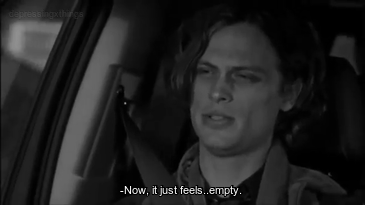
(This gif is not mine)
Chapter 4: Saying Sorry is a Virtue
It had been a little over three months since her absolute wrecking of the family retreat. She had managed to get her mom to get past it, and though she had promised to apologize to the rest of her aunts and uncles, she had not gotten around (well, more like she didn't think it was necessary, they probably had already forgotten, and she did actually mean every word she said).
Her team and she had evaded more danger than possible in the last couple of weeks, and she had a feeling today she would not be returning to her bed to sleep. She also had to figure out what she wanted to get Spencer for his birthday. She was so excited to celebrate with him that she wanted to spill her idea of a surprise birthday party to him, but she needed to remain strong. She just hoped he would like it, and that she could find something to give him. She knew him so much better now and had so many things that he would like, but she wanted this gift to be unique, something that reminded him of her. Not that she wanted him thinking about her all the time because that would be weird, but maybe once in a while?
A knock on her door made her get out of her head. She walked to see Tyler Hemingway standing on the other side.
"Can I come in?"
"Why?"
"I just-" He looked at the floor, nervous. "I was just hoping we could talk."
"We can talk right here, what do you want?"
"I just wanted to say I am sorry, for what happened."
"What exactly? That you humiliated me in front of my family, or that your wife called me and my boyfriend liars."
"All of it, I should have known better."
"Yes, you should have." She debated whether to say something else but decided against it. "I honestly don't understand where this is coming from, it was two years ago."
"I know, and I am also sorry it has taken me so long to say anything. I just didn't know how to approach the situation, and what we had was so special, I wish I hadn't ruined it."
She had waited to hear those words for so long that how wrong what she did, didn't occur to her until the damage had been done. Even if her feelings for the man in front of her were not the same as they were two years ago, those words were enough to make her become less hostile towards him. She let Tyler in, forgetting Spencer was waiting for her to pick him up in about twenty minutes.
"Spencer? Why are you late?"
"Because she didn't pick me up like she was supposed to. I assumed she may be running a little late, so I waited and then I called her, but it went straight to voicemail." He responded to Emily.
"That is so not like her, should we be worried?"
"I don't know, but I already am, maybe we should go see if she's home or something."
The elevator doors opened once again as Spencer and Emily were preparing themselves to raid her house in order to find her. She stepped out, a look of immense guilt present as her eyes landed on the brunette. He did not seem upset, more like relieved she was there. Emily dropped her jacket and embraced her, a huge weight lifting off her shoulders after seeing her. When she was released from the woman's hug, she directed her eyes back to him.
"I am so sorry; I was on my way-" before she could explain Aaron Hotchner told them to join the rest of the team at the round table to discuss the next case.
"This one is a bad one," JJ said as she read through the file. "These people are killing families. Not even the children are spared."
"Yeah, and it's only getting worse." Said Penelope as she shared the pictures of the crime scenes. She wished she could concentrate but Spencer kept glancing at her with worry. He knew something wasn't right, but she didn't know how to explain it without sounding like she was digging herself in a bigger hole.
She avoided him on the jet, as she pretended to be asleep and then engaged in a very interesting conversation with JJ about diapers and toddlers. As much as she loved the blonde, she sometimes didn't appreciate learning all these baby facts, it took the wishes to have children away faster than anything else.
She was now in a black SUV, with Spencer in the back seat and Emily driving. She sat in the front seat as they drove towards the hospital. One of the girls had been spared and they were hoping to talk to her about the unsubs.
"So, why were you late this morning?" Emily questioned, "You left Cinderella over there without his carriage."
"Yeah, I know. I am so sorry Spencer."
"It's okay, I just got worried."
"I know, and I am so sorry." She took a deep breath, preparing to explain to them why she had been delayed. "I just got some unexpected company this morning."
"Was it Anna?"
"No, she has been radio silent for these past couple of months, I'm assuming she is building a bulletproof alibi for when she decides to murder me."
"Is there something I should know about?" Emily asked as she stole glances at her.
"Spencer and I went to my family retreat a couple of months ago and when we were there I may or may not have basically told my aunts and uncles to go fuck themselves."
"You explicitly told them to do so." Spencer clarified.
"Why did you do that?"
"Because they all sucked. Emily if you would have been there, you would have done the same." Spencer responded. "But going back to the main topic, who came to your apartment today? Was it your mom?"
"We need to have a conversation about this whole family retreat thing!" The woman behind the steering wheel complained.
"I will tell you all about it tonight." She assured her. "And no, Spence, it wasn't my mom, it was someone a little closer to Anna."
"Her mom?"
"No, Tyler."
There was no response to that, Spencer looked like he didn't know exactly what he was feeling, while Emily seemed like she had returned to watch her favorite show only to find out she missed a whole season, and she had no idea what happened to the storyline she was following.
"Who's Tyler?"
"Anna's husband." She clarified, "he came to apologize for everything, and to say that he didn't think what Anna did was okay."
Reid scoffed, "and you believe him?"
"He seemed very genuine about it."
"Unbelievable."
"I am so lost right now."
"Spencer, are you upset about this?"
"Me? Why should I? It's not like I pretended to be your boyfriend to prevent him from making you feel any worse than he had already, and you ended up right back at where you started."
"Are you implying I slept with him?"
"I never said that."
"Well then what are you saying? Because need I remind you, he is a married man. I would never do something like that." She crossed her arms, becoming defensive of the situation. "He simply wanted to talk, so I listened. It was a conversation, and it's just going to be a dinner. Nothing more."
"Oh, so you're going on a date with him too?"
"It's not a date! Did I not mention he was married?! To another woman!"
"Being with someone else has never stopped him before."
"What is happening right now?" Emily asked, to no one in particular.
"Seriously Spencer?"
"Did I lie?"
"Why are you so worked up about this? It doesn't even concern you."
"I am upset, because even after he told you in front of all your family that he was in love with your cousin and married her, breaking your heart, he says, 'I'm sorry' and suddenly he's back on the top of your priority list." He spits out, his emotions running high.
"This man did what now?" Both looked at Prentiss as if remembering she was there all along.
"I can't believe you just said that! I confided in you."
"And I trusted you."
"It was one day! I forgot to pick you up one day and suddenly I am the worst person on this planet, really?"
"Are you seriously so oblivious to think this is about some stupid ride?"
"Guys,"
"No? Then what is this about? Is this about me making you look bad or something?"
"No, it's about the fact that after all we've been through and the fact that I have done all I can to help you and be there for you I am still less important than Tyler fucking Hemingway."
"Guys,"
"What the hell is that supposed to mean?"
"Guys,"
"It doesn't even matter anymore, enjoy your dinner." He undid his seat belt. "Why didn't you tell me we were here Emily?"
"I have been trying."
"Let's go then." He said as he exited the SUV marching up to the hospital entrance.
"What is his problem?" She asked Emily, still heated by the discussion.
"Well,-"
Before Prentiss could respond she was cut off. "I mean, yes, this guy broke my heart but that doesn't mean I have to hold a grudge forever, right? I might as well move past it, don't you think?"
"If you ask me-"
"And it was one conversation, and we're going out to dinner to finish it, there is nothing wrong with that. I don't know why he got so worked up about it, do you?"
"Yeah-"
"You know what, screw Spencer, if he wants to be a jerk for no fucking reason, let him do it. I am not going to lose sleep over it, nor am I gonna give him explanations. Who the hell does he think he is?"
"I think-"
"Yeah, you're right Emily, when Reid decides to get his shit together he can talk to me, in the meantime, we need to find out who these unsubs are before they hurt anyone else." She undid her seatbelt and opened the door, Emily still sitting there, trying to figure out what the heck had just happened. "Aren't you coming?"
"Yeah, sure." She followed suit and they both entered the hospital. Spencer was speaking to the girl's nurse as they approached, he didn't make any comments, but he also didn't acknowledge her, nor invite her into the conversation as he did to Emily. He was acting professional and doing his job, but his stance and emotions were very clear by the lack of interactions between them unless it was absolutely necessary.
As soon as Emily entered the room to interview the victim, the silence that engulfed them made her heart tighten. Spencer and she had gone past this already, they were friends, there was never a silent moment between them, and now all of that seemed to vanish in the air, all because of her decision to let Tyler Hemingway apologize.
She chose to ignore the situation until further notice. Emily was right, Spencer was being a dramatic prick and she was just gonna give him the time to realize that he was wrong. So when she got to bed, grateful for a bit of peace knowing one of the killers had been identified and was going to be caught soon, the last thing she wanted to do was have a conversation with Emily about the topic this same one had told her to not think about.
"I didn't say to just ignore it. As a matter of fact, I didn't get one sentence out during the whole drive to the hospital."
"That can't be true."
"Oh, but it was. Now I know how Reid felt when Gideon left." She fixed her shirt and continued, "well, regardless, what happened between you and Tyler, and what exactly does Dr. Genius know?"
"Spence knows pretty much everything, it kind of came with the territory." She recounted the story and this time she didn't leave any detail out, well, almost didn't leave any detail out.
Emily learned about Anna and their rivalry, Tyler and him choosing her cousin over her, the only thing she never even brought up was her dad. Only Spencer knew about it and she wanted to keep it that way. She finally landed on the weekend in question and the words she had shared with her cousin. Though that wasn't exactly what Prentiss found worrisome.
"You and Reid kissed?! Like on the lips?!" She screamed.
"Yeah, it was just so they would stop bugging us. It's not even the first time we kissed, so why is it a big deal?"
"Wait, you've kissed him before that day?"
"Yeah, at my cousin's wedding."
"Holy shit! I was not expecting that. My OTP is getting all these moments that will eventually lead to the ship sailing and I didn't even know about them!"
"Have you started talking another language by accident or something? I don't understand anything of what you just said."
"Don't worry about it. On a scale of one to ten, how good of a kisser is he?"
"Eleven." She responded immediately, "but that has nothing to do with this whole situation."
"It definitely does! Now it makes sense, Reid thinks you still have feelings for your ex, and he's jealous. He probably doesn't even know it, and he's probably trying to understand why he is so upset with you. Oh my god, he's jealous!"
"Emily, he's not jealous. Spence and I are not dating, we pretended to be a couple." She explained, thinking the woman hadn't understood her.
"Yeah, I know that, but I also know that any fake dating movie or book has always reached a point where the two main characters become unconsciously aware of their feelings. This is it! THIS IS IT!" She shook her and laughed, then suddenly came to a stop. "Oh my god, I am the best friend. I am definitely the friend that gives some wise advice that makes it click in your brain, let me think," she looked around the room as if inspiration would pop out of the bed. "I got it: get your shit together and marry Spencer." She stood and walked out the door, before fully closing it she spoke again, "Now if you'll excuse me, I have to go talk some sense into our little genius. Love you, hope I am invited to the wedding!"
Though after the break in the case they had found themselves relieved and on their way back, the nagging feeling she called Emily Prentiss kept insisting that both doctors were actually in love and that all they needed to do was kiss and become a couple. It was so constant that even when she wasn't around she could hear her echo. Like right then when she was trying to brush her hair and mentally prepare herself for whatever this dinner with Tyler was going to bring. Though she and Spencer had not yelled or continued to argue, there was nothing else left of their friendship, at least that's what it seemed like. It was as if the past months were a dream and they were just back to being coworkers, and that feeling was burning her up inside. She did not realize how important he had become in her life until he wasn't a part of it anymore.
"You look great," Tyler said as she entered the restaurant.
"Thanks, Spence helped me pick out this shirt when we went to the mall a couple of weeks ago. He said blue always looked good on me."
"That's great." The man responded, clearly uncomfortable. "So, I know you had to leave for work the other day, but I was hoping now we could talk more about what happened between us."
"Yes, of course."
She didn't really understand how she had gotten to the point of having an actual conversation with the man sitting across from her, because she had been angry at him for so long, that it never occurred to her as a possibility. He had once again apologized and given her a tale of how he had let his emotions guide him without realizing he could hurt others, and while that didn't excuse his actions, she still accepted his apology, choosing instead to move on from their current limbo. They had quickly changed the conversation, like if two old friends had reconnected after so long. Tyler was a great friend when he wanted to be, he was pleasant company, to say the least.
"And the other day, Spence was trying to learn to play the piano, and I told him there was no way he could learn in a week. So what did he do? He-"
"Stop, just stop!" He interrupted her, and she furrowed her eyebrows confused. "I have been sitting here for an hour listening to you talk about your stupid boyfriend and his IQ of 187." He rubbed his hands through his face and tried to calm down. "Was this the plan all along? You heard me tell you that I wished I hadn't ruined our relationship and decided playing with me was perfect revenge? Accepting dinner only to humiliate me by ignoring me and choosing to talk about that Spencer guy? Is he in on it or something?"
Oh. My. God.
Reid was right, this man was not looking to mend old friendships or start a new chapter, he was looking for a mistress.
"You, are the worst type of jerk I have ever met. I actually believed you wanted to be friends, to turn the page but all you wanted was to get in my pants." She stood, grabbing her drink and spilling it over him. "I hope I never see you again. Go fuck yourself Tyler." She walked, but before she exited the restaurant she returned and gave him a fake smile, "and also, Thank you for humiliating me in front of my family, you showed me how little you were and that I could do so much better. Say, an FBI agent with an IQ of 187." Once again she turned and this time she didn't even bother looking back.
The drive to her apartment was long, mostly because she didn't drive there, but to Spencer Reid's home. She felt her palms sweat, she hated admitting she was wrong, but she hated not having Spencer around much more than a bruised ego. She knocked on the door and Spencer opened, he looked confused, but as soon as he registered her in he simply raised an eyebrow and changed his confused demeanor to a completely neutral.
"I came to tell you that you were right. He just wanted to get in pants." There was no response, and she fiddled with her hands. "I actually thought he wanted to apologize, and I think part of me just wanted to believe that for the first time I was not being used, that people actually cared about what I felt."
"There are people that care about you, they are just not the wants you wanted to."
"No, they are! I thought I needed the people who wronged me to fix it, to show me that I was worth the trouble when in reality all I needed was for me to understand that I was. And I just needed a reminder that the people that care about me are the ones that should matter the most." A trace of a smile formed on his lips. "I am so sorry about how I acted, and I am sorry I left you here waiting for me. Spencer Reid, you are my best friend and you come before any other jerk out there. I need you to know that this time in which I didn't have you with me was miserable. I missed you so much I spent the whole dinner with Tyler talking about you."
"You did?" He seemed genuinely surprised.
"Yeah, I did. I missed you, and I hope we never fight again, I don't know what I would do without your friendship."
"I missed you too." She bit her lip, and he smiled. "Wanna come in and watch TV?"
"I would love that."
"That's good to hear, I am trying to get Spence here to watch Dance Moms with me but he refuses, maybe if there is two of us, he'll change his mind." A voice inside his apartment spoke. He opened the door to reveal Emily Prentiss wearing Pjs with The Hunger Games symbols on them. "May I say, you look hot. Blue suits you."
"So I've been told."
"Are you sure you can handle being in that close all night though? Maybe Spencer can lend you one of his shirts." She said, winking at them.
"Has she been drinking?"
"It's her third bottle of wine."
"We need to cut her off."
"Yeah, we do." He smiled at her, "She's right though, if you want to borrow something more comfortable let me know."
"Careful Spencer Reid, I might take you up on that."
"Awwww, YOU TWO ARE ADORABLE!" The woman screamed. "Just get married already!"
The pair laughed and made their way to the sofa, she closed the door behind her and sat down, feeling whole for the first time this week. Emily and Spencer were the best friends a girl could ask for, and she couldn't think of a better way to spend the rest of her night than watching trash TV with the two of them as they laughed and joked.
It was home.

38 notes
·
View notes
Text
Fanfic 2020 in Review
I got tagged by @kasienda @noirshitsuji and @marvelousmsmol and I am tagging whoever wants to play!
1) List of fics completed this year in the order they were finished:
*filters own works to complete and updated in 2020*
1 - 20 of 57 Works by AlexSeanchai
nope. *adds filter to include only works of at least 1000 words*
unless otherwise indicated, these are all Miraculous Ladybug:
“don’t bake it lying down”, post-reveal Marichat vs Felix Graham de Vanily
“veracity”, canon divergence from “Ladybug” featuring Mister Bug and Verity Queen (so also Marichat, I guess)
“(no request is too extreme, if) your heart is in your dream”, in which Hawkmoth wins, for the thirty seconds or so before Emilie saves Ladybug and Chat Noir’s lives
“tell me you love me and make me believe it”, in which trans girl Chatonne Noire ropes Ladybug into helping plan her civilian self’s escape slash social transition
“kingmaker, oathbreaker”, in which Hawkmoth wins and Emilie watches her son remove himself from the family
“stay and let me watch you break it down” (Twelve Dancing Princesses), a modern setting
“set a course for winds of fortune”, in which trans girl Chatonne Noire has already escaped and Gabriel and Nathalie are trying to bring Gabriel’s son home
“we ground love in a hopeless place”, in which post-reveal Marinette’s attempt to remain resolutely not in love with her partner dissolves like sugar in coffee when they start a pun war
“ring the bells that still can ring”, in which Alya is deeply confused about why Adrien and Marinette are planning a wedding when last night both were single
“burning wishes at both ends (the cold wind and long loud wail remix)”, in which Gabriel made a monkey’s paw wish and Emilie makes another
“words cannot espresso”, in which Marinette’s OC roommate is justifiably worried for Marinette’s safety, and meanwhile Adrien takes care of Marinette
“the compromise of truth” (the chronologically second-earliest part posted to date of nine lives, snake’s eyes), in which Adrien tells his friends how he won some freedom and respect from his father
“At The Present Time”, the Ladrien/Ladynoir marriage proposal follow-up to @art-deco-shrimp‘s “Your Presents Required”
“j'ai rêvé (so I don't have to dream alone)”, in which the events of canon must just have been a series of dream sequences, Marinette and Adrien both think, until they both arrive at Chloe’s Halloween masquerade dressed as themselves from the dreams
2) Number of words written:
ahahaha no. I am not counting all my scattered fic drafts and trying to figure out what I did and didn’t write in 2020. I refuse.
AO3 says I posted 162K in 2020. it is counting all of keeps you guessing (like any real love), which (a) I started posting in 2019 (b) is co-written by @galahadwilder; it is counting all of my meta snippets collection, much of which was written in 2019; it is counting the Vimeo passwords for my vids. but I probably cleared 150K by a safe margin.
3) Your most popular fic:
“veracity” has a four-digit kudos count, wow, when’d that happen? this is also the 2020 work with the most hits and the most bookmarks, but “tell me you love me” has four-thirds as many comments as its nearest competitor.
4) Your personal fav:
“cannot break us, not with a thousand swords”, no question about it. this is the one in which Ladybug proposes marriage to Chat Noir via Princess Bride meme on Tumblr. (if you intend to download the work or otherwise to consume it with creator style off, you want the accessible version instead of the primary version.)
5) Your fav scene:
aaaaaaaaa
—okay so this is cheating and I know it, since Uncertain Humors (the one where Marinette/Adrien is both Orpheus/Eurydice and Theseus/Ariadne) is nowhere near finished, never mind posted (maybe I'll get “Sanguine” done to post on my birthday?)
but it is still my favorite of the year. as you might guess from that description of the story, this scene has content notes for character death:
Hell is a maze. Marinette walks.
This acrid passage has little to see but damp stone, seeming blood-stained in the dim carmine light. At about the height of her heart, the faintly glowing thread cuts through the not-clammy air; it ought to be pulsing at the same rate as the heart it's bound to. She might be able to see her own reflection if she looked down at the open sewage pipe, or at one of the puddles that now and again she splashes through, dampening the canvas of her shoes. She might see reflected what's behind her.
She remembers Mme. Mendeleiev lecturing on human physiology. In healthy humans old enough to have learned how, urination is a voluntary action: one may not know which muscles one tenses and relaxes in order to do so, and probably isn't paying attention to those details when one is doing, but one has conscious control over whether one does. Usually. Stress and anxiety mean some people are unable to relax the relevant sphincter muscle and others are unable to stop themselves. It's voluntary for cats, too: it's one way they mark their territories. Cat-boys have other ways.
There is a moment in every human life when all one's muscles relax at once. Some Parisians have had several such moments.
The thread is braided with itself around her left fourth finger, rows of tiny red half-hitch knots, and falls loosely over the back of her hand to loop twice around her wrist. She holds it wrapped between the fingers of her right hand to keep it at a constant tension, as though knitting with this insubstantial thread, so fragile for something two (two dozen, two million) lives hang from—too thin to sew with, no thicker than one strand of his hair. As she walks, she winds it around and around and around her wrist.
Between her ring finger and her right hand, it loops twice.
Marinette's shoe lands in a puddle she didn't see. The rainwater splashes soundlessly onto her bare ankle and on the stone.
(With cat-like tread, upon our prey we steal— It's a very loud song.)
She walks on.
6) A fic or scene that challenged you:
where the firelight fades, no contest. this is the second story I’ve ever been able to stick with more than a couple hundred words past the 20K mark, but it’s easily the twentieth novel-length I’ve begun. (though also, you know that kedreeva post? well, 90K later, I’m less than 15K from completing this 10K fic! I think.) and I have been learning so much about long-form fiction.
there has also been a lot of weeping and tearing my hair. case in point: I just trashed the chapter 15 draft because I figured out the reason it wasn’t going anywhere! I can probably keep the first few hundred words of that draft without any editing, and another few hundred with some revision...
7) A line of writing you’re proud of:
from “j'ai rêvé (so I don't have to dream alone)”:
Everything about their partnership is fragments of sentences in the dream diary Adrien writes in ultraviolet pen. Disjointed flickers of thought even when examined under the black light he hides in the snack cabinet under packets of Super Yoyo sandwich cookies and bags of cheesy Monster Munch potato chips and boxes of petit écolier butter cookies (chocolat noir)—none of which explains the gym-socks smell. All fleeting incoherent flashes, invisible between the mundane lines of La Modification shelved at his bedside between Leroux and Dumas. None of it is solid. Adrien has more proof his room's haunted.
okay let me break this down for you!
* Adrien started a dream diary to make sense of the memories
* in invisible ink, in a book that (according to Wikipedia) is thematically appropriate and won’t (if Gabriel sees it) look like anything other than Adrien developing an interest in French literature
* shelved between Phantom of the Opera and The Three Musketeers
* look I didn’t come up with the name “black light”
* or “chocolat noir” for what English speakers call “dark chocolate”, or “petit écolier” (that is, “little schoolboy”) for that sort of butter cookie
* also not my fault that “chocolat noir” sounds remarkably like “Chat Noir”, which, attentive readers may have noticed, is not a name that appears in the story after the header and before Miraculous Cure
* I found the website of a store in Boston, Massachusetts that caters to French expats, and the yo-yo cookies and the monster chips were right there in the photos, y’all
* the snack stash and the black light live in the cabinet where, in canon, the Camembert lives; yes, that cheese smells in the real world like gym socks
* this story’s akuma was not able to affect anything but squishy human memory: nobody affected remembers anything about Ladybug or Chat Noir or Hawkmoth, not in any solid way, not even when they read news articles about the subject, and this includes Marinette and Adrien not being able to see or hear or remember their own kwamis—but you know what Adrien’s Insta post about his poltergeist and Adrien’s Insta post with the floating sock don’t show and don’t explicitly refer to?
* I love this paragraph so much (my housemates may have been lovingly mocking me over it)
8) A comment that touched you:
there are people (y’all know who you are) who said y’all are studying my style. I ded of blush.
9) Something that inspired your writing:
by volume of fic drafts that can be blamed on any particular person, the winner is probably @norakwami
10) Your proudest accomplishment (that one scene; finally finishing that one fic; posting your first fic; etc):
so that longest-story-ever-written record I set in 2007 with the 89.5K story that, till where the firelight fades, was the only story I’d gotten much past 20K?
I broke that fucking record!
and then I deleted the draft of firelight chapter 15 😭
11) Do you have any writing goals for the next year?
I’m starting work on a fantasy novel, a Sleeping Beauty retelling in which I explore (among other things) the economic consequences of the king’s ordering all the spinning wheels burned, and I want to make significant progress on that. and I want to not make my hands any worse; I kind of need those!
(breaking news alert: bodies fucking suck. so does giving yourself repetitive stress injuries in doing one and a half to two people’s worth of work for an organization that was never ever going to pay you more than one person’s worth of pay.)
37 notes
·
View notes
Text
Frozen 2:The Impression of Accountability, Iduna and Agnar Characterization Analysis
Warning: LONG POST, Anti-Frozen, spoilers for Frozen 2, swearing, talking about racism and mentions child abuse. If I get anything wrong on the issue of accountability, please don’t hesitate to correct me.
Summary: Examining the inconsistencies between Frozen 2′s depiction of the behavior of Iduna and Agnarr and how this affects the overall themes of Frozen.
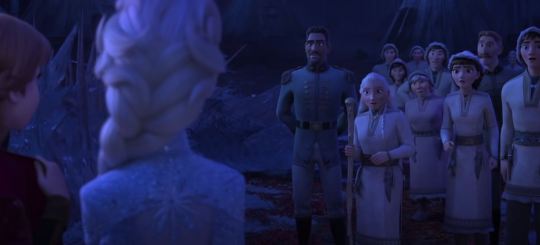
Introduction
I’ve let myself sit on Frozen 2 and how I feel about it for a couple of months now. I’ve mostly focused on the meta-aspects of the film, from it’s character design to the early spoilers, but nothing too in depth until recently.
And I’ve come to this conclusion that Frozen 2 is almost accountable, but backs away from any true accountability on the part of Arendelle and, most controversially from the response from my posts, Elsa and Anna’s parents.
Arendelle: The Spirits Hate Them But Not Really
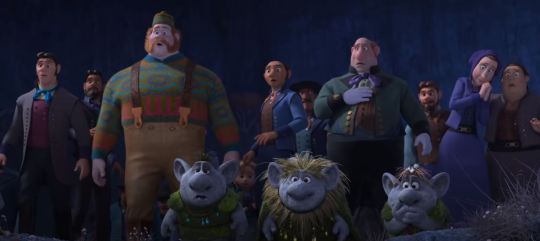
Frozen 2 is often praised for it’s handling of holding Arendelle accountable for it’s crimes. The spirits are angry with Arendelle for the previous king, Agnarr’s father Runeard for killing the leader of Northuldra. It is up to Anna and Elsa to right the wrongs of the past and destroy the damn that brought only grief to the Northuldra and the spirits of the Enchanted forest.
So, I have a question. If the spirits were so angry with Arendelle, then why trap the Northuldra and allow Agnarr to leave to rule Arendelle without any real repercussions? Sure, King Runeard is killed in battle, an immediate consequence for his actions but that was ultimately a good thing because he sucked. Only a few soldiers were left behind as well. And King Runeard was later succeeded by king Agnarr, his son, who sucked slightly less than him.
Arendelle was allowed to prosper with a better king, and Iduna is rewarded for saving his life by the spirits by having her child be gifted with magic.
For saving the son of the man who murdered the Northuldra leader.
Because that is something to reward...??
I’m starting to think that the concept of accountability is kind of twisted in Frozen 2. Arendelle is explicitly in the wrong, and yet, they are rewarded constantly for no reason.
The entire Northuldra community, who have a good relationship with the spirits and were merely acting in self defense, were collectively punished and forcibly kept in a magic barrier for 34 years. That doesn’t sound very fair to me.

Arendelle is Rewarded Rather Than Truly Punished
Yeah, Arendelle is wrong, but they get more benefits than punishments in long run. In fact, you could argue they were exponentially REWARDED for their heinous actions because as a result of the battle they have:
A super powerful monarch who wields magic (which no one else has because Elsa is special)
A better king than the one who died in battle to succeed him (King Agnarr) and who is married to the woman who is the favored child of the spirits
Citizens allowed to go anywhere they want and do trade with other countries to their benefit
Any consequence of said powerful monarchs magical actions (eternal winter) maybe only lasted three days, TOPS. After that she is immediately accepted for her powers and now Arendelle is essentially bulletproof because they have a magic ice queen to defend them.
Allowed to get a warning before the flood of Arendelle, but the Northuldra didn’t get any.
Allowed Elsa to stop the flood to spare Arendelle, because for some reason the spirits are super cool with Arendelle now?
Like, how fucking crazy would it have been if the spirits woke up and immediately destroyed the dam while everyone in Arendelle was sleeping? THAT would’ve been a life or death conflict.
But the movie is determined to deal with accountability with kid gloves, or weasel out at the last minute.
Part 2: Iduna and Agnarr

Now, the aspect I want to talk about is the way that the story frames Iduna and Agnarr and how this contrasts with what we know about them up until the most recent movie.
This is an examination of the theatrical installments of Frozen because they are the most canonical. Extra stories in books or supplemental material that wasn’t widely released or accessible don’t really count. And not to mention, the consistency between the theatrically released movies and shorts are mostly made by the same team. Therefore, have most canonical elements to them.
Iduna and Agnarr’s Relationship with their Children
Up until Frozen 2, the general consensus was that Iduna and Agnarr’s parents was...misguided.
Misguided being a very soft term in my opinion because I truly feel that what they did was completely out of line and extreme, crossing the border of abuse. But that’s my personal opinion and it’s not how they are framed in the movie.
Control vs. Love Theme
Iduna and Agnarr love Elsa and Anna. That much is true. However, Frozen, like a lot white disney princess movies believes that good intentions means benevolent actions. (Please note: I’m going to refer to Elsa and Anna as white coded, because that appears to be the most appropriate given that they are canonically white passing Indigenous characters. Yet, all the white disney princess tropes definitely apply to how they are framed and their characterization in the first film).
However, this is not true whatsoever in reality, but most importantly, it’s not consistent with what is shown as a result of their desire to control Elsa.
And yes, their desire to control and contain her meant that their “love” for Elsa-- least the impression they gave her and never made her feel otherwise--was conditional love. It means that as long as she controlled her powers they approved of her and gave positive reinforcement.

Iduna and Agnarr’s Love Had Conditions, Anna’s Didn’t
Their approach love can be compared to Prince Hans, because he is another extreme: He wouldn’t be interested in Anna if she didn’t have the power he desired. Many characters in Frozen are compared in whether their love comes with conditions, or is unconditional.
Iduna and Agnarr, unwittingly, proved to Elsa that their love for her was conditional. Yes, they loved her, but they didn’t love every part of her. And that, in of itself, is placing conditions on their love.
If we go by the narrative context of Anna’s love in comparison, hers comes without condition. Elsa’s powers are at their most controlled when she is given love without strings. Which is why the solution was (admittedly very cheesy and somewhat out of place) “love.”
The more specific kind is the love Anna has for her sister. She never stops loving Elsa, even after she is hurt by her. She might be angry, frustrated, but in the end loves Elsa the right way.
Frozen Fever
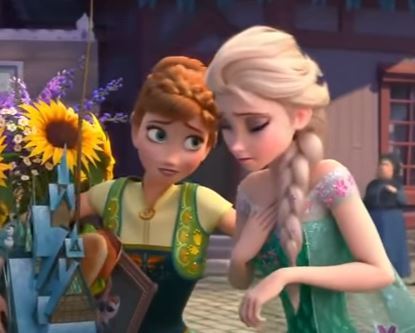
Subsequent installments drive home this point even further. In Frozen Fever, more is revealed in implications about their parents without directly referring to them by name.
Iduna and Agnarr don’t celebrate Anna’s birthday after the incident. Elsa cannot recognize when she is sick and in need of medical attention. She feels like she needs to go overboard in celebrating Anna’s birthday, is highly self critical, because their parents never allowed either of them to celebrate it.
Olaf’s Frozen Adventure
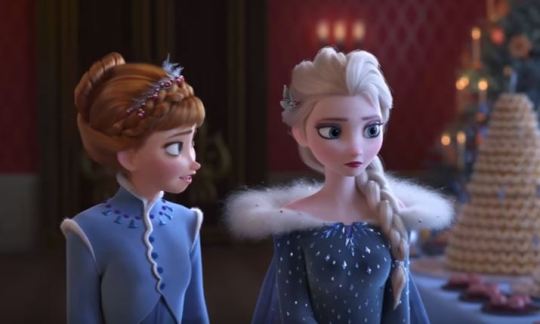
Olaf’s Frozen Adventure goes even further into the theme that Anna and Elsa are moving away from their parents traditions and expectations.
Elsa laments not having a Christmas tradition, because her parents only rung the bell in front of the citizens as a superficial way to signal “everything’s just fine,” when it wasn’t. When all the mandated bell ringing was done, they went back to separating the sisters.
At the end, Elsa and Anna make their own unique traditions, and that ringing the bell doesn’t matter anymore. Their bond is what makes Christmas special for them. This is narrative cue that they are moving away from their parents and looking toward the future.
Frozen 2: Iduna and Agnarr’s Love is Depicted as Unconditional
And then we get to Frozen 2.
I have problems with the way they portray Iduna and Agnarr as parents in Frozen 2. It started when the film opened with Elsa and Anna playing with Elsa’s magic while their parents look on smiling.
That’s confusing, and a little out of character. I didn’t get the impression in the first movie or shorts that Iduna nor Agnarr particularly cared for Elsa’s powers, and I also didn’t think they would be so cool with her using them so blatantly.
Elsa’s ice powers were the bond that kept Anna and her together. That’s why they had to go and play in secret. Because Elsa’s powers were supposed to be something that couldn’t be played with out in front of their parents. That was the first cue that something was very different about this Iduna and Agnarr.
And Frozen 2 is telling it’s audience that the parents would be supportive? Then why would Elsa feel so anxious about using them and locking herself away for so long after her parents explicitly made changes to the staff, the access to the outside, and refusing to tell Anna about Elsa’s powers? Her actions didn’t come from nowhere. Their negative reaction to Elsa’s powers was a common occurrence.
In fact, that very same night where he looks on lovingly at Elsa’s ice magic, we hear Agnarr immediately placing blame on Elsa for an accident and exacerbating her trauma. This is a reprimanding that has been done before. Her ice powers were something to be hidden.

Agnarr: “Elsa, what have you done? This is getting out of hand.”
Elsa “It was an accident, (to Anna) I’m sorry Anna.”
Iduna: “She’s ice cold.”
Agnarr: “I know where we have to go.”
Does this sound like the same man and woman who, just hours earlier looked on with happiness at his child using her ice powers to play pretend with her sister? It really doesn’t.
King Agnarr and Queen Iduna specifically decide to “Lock the gates, reduce the staff, and limit her [Elsa’s] contact with people. Keep her powers hidden from everyone...including Anna.”
The filmmakers really pulled out all the stops in the sequel to make sure that all the pain and suffering Elsa went through was actually totally just her own decisions, and the not the decisions that her parents made for a young child.

I’m not going to lie, I get why they made so many changes. They wanted to expand on Iduna’s heritage and explain Agnarr’s view of magic without complicating the story too much.
But these morally gray elements to their characters and the revelations on their backstories didn’t need to be mutually exclusive. If the filmmakers held Agnarr and Iduna accountable, we could’ve had a very unique set of parents in disney canon.
Personally, I think that portraying them without the morally gray areas of their actions and having with an unambiguously supportive relationship with their children in Frozen 2 conflicts with their earlier actions. It makes the story flow a little bit better in the sequel to uncomplicate their relationship, but I think the way they set them up would’ve been interesting too.
Olaf’s Recap Removes the Parent’s Decision to Lock Elsa Away
I was also tipped off that the whole framing of the parents was being twisted when I saw Olaf’s recap in Frozen 2.

Olaf: [As Elsa] Anna, no too high! Blast! [a Anna] Ohhh! [as Elsa] Mama Papa Help! Slam, doors shutting everywhere, sisters torn apart. Well, at least they have their parents. [beat] Their parents are dead.
The way he describes the situation is bizzare to say the least. He doesn’t mention “conceal, don’t feel” even once. He mentions the parents positively, stripping their role in Elsa and Anna’s separation and only leaving it between the lines. I think this is because if they remind the audience about the things the parents did, the audience would have a harder time accepting their sudden support for Elsa’s powers.
If the parents actions weren’t controversial, then I think that they wouldn’t have this problem. But it’s like they went out of their way to make it appear that it was actually all Elsa’s decision to lock herself away instead of her parents expecting her to do so without protest.
It Was Iduna and Agnarr’s Decision to Isolate Elsa, Not Elsa Herself

When we really look into the specifics of Elsa’s isolation, we can’t ignore Iduna and Agnarr’s role. The only reason why Elsa became so secretive is because she was conditioned to do so by her parents.
How many times did Anna go to her parents and ask what was wrong with Elsa, only to be turned away to the point where she doesn’t bother anymore?
How could they look at this situation for more than a week, and just allow this to happen? Easily, because it was a solution that worked for them. It honestly looks like they got used to the situation after years of Elsa’s isolation.
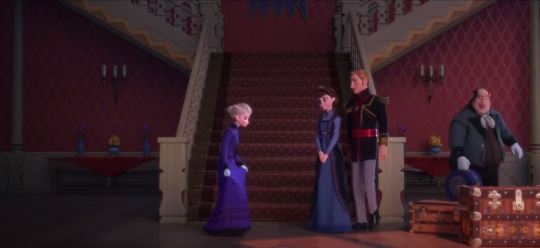
Just look at the body language of Elsa’s farewell to her parents, Elsa is NOT happy. Unlike Anna, she remains a good distance away from them. She is nervous and sad without her parents to direct her.
This is reaction they are most likely expecting. Her parents smile on, almost as if to say “she’ll be ok for a couple of weeks, then we’ll be right back to normal and keep her in check.” It’s a reassuring smile, that things will go back to the way they were once they come back. And they don’t.

Elsa Hiding Things is Learned
Look man, I feel like Elsa should be held accountable for a lot of things. Abandoning her people, twice, in the middle of a storm she created. Not getting help for Anna when she was injured and kicking her out of the ice castle instead. All things she should get shit for.
However, I also think that her parents shouldn’t be let off the hook.
My other problem comes from Frozen 2′s emphasis on Elsa hiding things from Anna. The constant references to Elsa shutting Anna out, making decisions without her, would definitely lead a more casual viewer under the impression that it was all Elsa’s decision to lock herself away for years at a time when this simply wasn’t true.
On a meta note, I’ve seen people place all the blame on Elsa to lock herself away to in order to prop up her parents and give them the benefit of the doubt. That they were trying their best in a situation they didn’t have any knowledge of. However, this is an extremely inappropriate reaction to a character who is depicted as a child under the care of her parents.
I think that there is an intrinsic desire for people to believe the framing of movies, and that good intent creates good results. But the text of Frozen shows this isn’t true either. Iduna and Agnarr should be able to be morally gray characters who made decisions that aren’t always beneficial, even with the best intentions.
Elsa and Anna, like most siblings, have wildly different feelings toward them. For example, Anna insists to Elsa after finding out the truth about their death that she is not responsible for their decisions when Elsa blames herself.
On one hand, this seems to be an acceptance by the story that they were not perfect people and that Elsa needs to take into consideration that she is not responsible for their actions.
However, the way that this conversation is framed shows that this is a different conversation altogether. Anna means that they gave their lives to HELP Elsa, and that she is a gift for Iduna saving Agnarr. It martyrs their sacrifice, something that most fictional parents, who are portrayed as ultimately good, would be. They died to help her, because they were good parents who made good decisions.
They are Flawed Characters
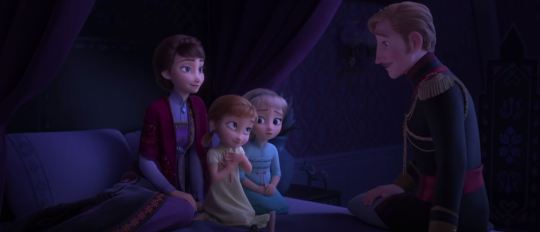
But...they didn’t make good decisions. They were very flawed individuals. Once something is portrayed as flawed, it can’t be flawless. You can’t just dump their decisions on how they grew up, or say it’s all Elsa’s fault they treated her that way because mature writing means that you accept that your characters need to be held accountable for their decisions.
No matter how many sad looks they give to convey their sympathetic nature in Frozen, the reason Agnarr and Iduna used the gloves and kept Elsa in a constant state of fear so much was because it was working. It wasn’t a good long term plan, nor ideal for them, but it was the one they went along with because it kept Elsa’s powers in check.
I personally don’t like how the filmmakers made them the idea of parents. Iduna is the idea of a mother and Agnarr, the idea of a father. We are supposed to put fond memories of good parents into their characterization because they rely on audiences not really remembering them in the first movie. The biggest scene with them is their death in the original movie.
If they simply were just parents who died, then the characterization is Frozen 2 would be a welcome expansion of underdeveloped characters with little screen time.And within the vaccum of the sequel, their unconditional love for their daughters makes sense. If we place the generic idea of a mother into Iduna’s role, we get to know the mother who always loved her daughter finally reconnecting with her after her tragic death. With Agnarr we get a loving father who only wanted what was best for his daughters, who was misguided on the truth of the past.
But Iduna’s big duet with Elsa, “Show Yourself” only highlights the parents role in her involvement with making Elsa suppress her powers with “conceal, don’t feel” since it’s a direct response.
Agnarr’s misremembering of the past is used to highlight the truth that needed to be revealed. It’s portrayed as tragic, since we can assume he never learns the truth. And their treatment of Elsa’s powers is never brought up in detail, just glossed over.
Even Parents With the Best Intentions Can Hurt Their Children
The problem is that we could’ve really examined how Iduna, forced with suppressing her identity, made mistakes in trying to protect her daughter. Sometimes people from marginalized groups who have no choice but to assimilate force their children to hide their identity to protect them from harm.
Agnarr’s upbringing is often pointed to as the source of his extreme views on magic, and that he inherited it from his father. But ultimately he is responsible for his actions, and he hurt his daughters. Sometimes people who seek to do better than their parents end up making the same mistakes.
Maybe Iduna regrets hurting Elsa but felt it was a better alternative than being killed for who she is, or Agnarr so focused on protecting her he never realizes it was doing her more harm than good because it was controlling her and giving him the results he wanted.
This could’ve been parallel with his lack of critical thinking when recounting the enchanted forest story. He doesn’t question why the conflict started, even though he has the pieces to put it together himself. He told it in a way that benefited him the most, without considering the people around him.
Both parents could still be held accountable for the pain they caused Elsa and they would also be characters who inspire different feelings from both daughters. This could also be a turning point in Frozen 2′s theme that the sisters are on different paths.
Final Thoughts
Like I said, I understand why the filmmakers of Frozen 2 decided to tone down the harsher implications of the parents actions. And maybe in the end, people really prefer this version of Iduna and Agnarr. But I can’t really ignore what they’ve done because their actions permeate the very themes of Frozen’s views on love and control.
However, these are personal feelings toward this subject and I think it could’ve been handled a little better.
142 notes
·
View notes
Text
PROCESS, ONE: A READER’S JOURNEY
“The essays in this book were memoir until they couldn’t stand to be memoir anymore.” —Leslie Jamison
Had I read that quote even only six months ago (the book to which she refers is her much-lauded personal essay collection The Empathy Exams), I wouldn’t have known exactly what it meant.
How can a piece of writing evolve from memoir? In terms of simple, unvarnished truth-telling, I thought the memoir, as a genre of literature, was pretty much the vessel. Yet here a case is being made for something that sounds like the opposite: it seems one can go beyond even the once terminally-regarded memoir.
Let me think about this further, about my confusion. Maybe my framing is off. Maybe it’s not an issue of evolution or reduction. It’s not that the personal essay is somehow purer than the memoir, as far as autobiographical writing is concerned. The issue is not one of authenticity. It’s about application, or even misapplication, that the quest for truth for which one naturally uses the data of one’s own life could, depending on the circumstances, be more appropriately undertaken in a different genre. The two genres are merely looking at different subject matter. They’re examining completely different lifeforms on the slides, but they’re using the same authentic microscope, as it were.
I relate to the sense of frustration in the Jamison quote, that there’s a feeling that the mission she started out on—writing a memoir—became so inadequate for the real task at hand that it became unbearable, that the pressure of working under a false guise gave way to a different form of transmission.
The memoir became a personal essay collection. It had to. The questions she was exploring could not be undertaken by simply telling the story of one’s own life. Personal data was necessary for the full picture. But she needed other sources, the experiences of others, the realities of phenomena outside of her normal experience, even as they were phenomena that ultimately she ended up relating to in a deeply intimate manner. In her collection, she let us into those experiences, and then we were able to relate, by dint of her fearless storytelling and personal excavations.
Now I’m getting it: a personal essay is fixed on some question and that is what drives the exploration. Personal, say, autobiographical, details are needed for the exploration, and this can vary depending on the subject. But the focus is the external question. That is the different lifeform on the slide. It’s about the question being pursued.
I.
But first, a look at where I started on this journey, with the memoir itself.
The memoir as a work of literature was my singular focus while I was crafting my book proposal a couple of years ago. Simply put, it was what was on the table. Owing to my provenance as a musician and an actor, and my express interest in writing about my life, the genre of the memoir naturally became a thing for me.
So I dove into acquainting myself, not with examples of celebrity memoirs or memoirs by politicians—perhaps the two most popular varieties—but with examples of the finer possibilities in those genres which—big surprise—happen to be written for the most part by writers. I found myself falling in love with the exercise of memoir writing, as opposed to, say, the gratuitous voyeurism that is often offered by the popular variants of the genre.
For me, what became valuable was the quality of the writing; most of the time I was reading the life stories of people with whose work I had, outside of the memoir being read, little to no familiarity. These windows into life were captivating in their own right, these portals into raw experience, the possibilities of narration within the genre of nonfiction, the enlightened self-awareness made evident in sculpting large-scale timelines of one’s own life.
----------------------------------
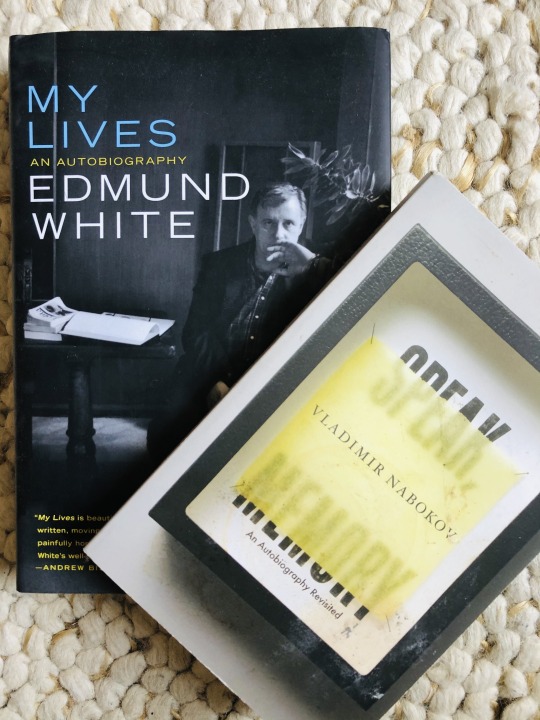
It’s difficult for me to overstate the degree to which these two books have influenced me thus far.
Nabokov’s memoir is well-known. It’s a work of literature in its own right. It is a great example of the possibilities of the memoir to accomplish something other than realism: the whole thing is a kind of Proustian meta-narrative of his childhood and abrupt departure from Russia after the revolution, like a dream of family life written down. Mary Karr, in The Art of Memoir, heads her chapter on this book, “Don’t Try This at Home: The Seductive, Narcissistic Count.” Indeed, the book reads somewhat Transylvanianly, a bold, exotic yarn full of strange characters unfurled for an audience unfamiliar with that way of life. It reads as alluring and dark, and, yes, quite vampiric. But it is also profound and gorgeous.
While it’s not really a memoir, more of an autobiography, and also not often regarded as exemplary of the form, My Lives, written by Edmund White is an incredible tour de force of portraiture of the most important people in his life, his therapists, his parents, his lovers, his friends, his subjects, they all get a chapter dedicated specifically to them. Imagine knowing a world-renowned painter who decides he wants to do a string of portraits of the most important people in his life and you are one of them. That’s what this is, in literary form. It’s less a story of him than of these people, but, by the end of the book, you, of course, end up knowing a lot about him. His ability to make you see the things that he is looking at, in a very concrete, physical way—the curves of a body, the angles of a face, the ambience of a train station—is unparalleled in my view.
Is there a difference between an (a) autobiography and a (b) memoir?
I think the difference is about scope. The autobiography is explicitly a functional genre that attempts to document a person’s entire life. It is a biography that is written by the person whose life is being written about. It does not usually try to invoke any literary devices and is intended to serve as an ancillary to consumption of the subject’s work outside of the autobiography. It is a kind of “reader” of the subject’s life. It’s main purpose is not to be written well (although if it isn’t it is a grave mistake), it is to convey the near entirety of the subject’s experience on earth.
By contrast, good writing is a bit more called-for in the memoir; otherwise the whole premise falls apart. The memoir, in carving out a specific “slice” of a person, either a period of time or some type of encounter or some activity that they always do, is explicitly intended to amplify and interrogate aspects of being. In this way, the memoir has more potential for inspiration and edification irrespective of the reader’s interest in the subject’s life outside of the memoir. This, to me, is the crucial difference.
For the most part, I am not explicitly a huge fan of the work of the writers below. But their memoirs have touched and inspired me. I don’t think I would have all that much interest in reading the autobiography of, say, Joan Didion. (I might, I can’t be sure, of course). But my point is that I’m not looking for her autobiography, whereas there’re a lot of Didion fans out there that would be waiting for said autobiography.
In this way, autobiography is a kind of fan service, whereas the memoir is a thing unto itself. It is a work of literature written for the purpose of refracting aspects of being alive. To appreciate that type of writing you need not be familiar with anything else that person has done on this planet, anymore than that it is necessary to be familiar with Herman Melville’s entire oeuvre in order to love and appreciate Moby Dick.
It was with the consciousness of the memoir’s self-sufficiency, the irony of its ability to communicate, in its more specific mode, even more broadly than the supposedly more capacious autobiography, that I continued my exploration of the genre and began taking notes for the writing of my own memoir (which is now a personal essay collection, but more on that later).
----------------------------------
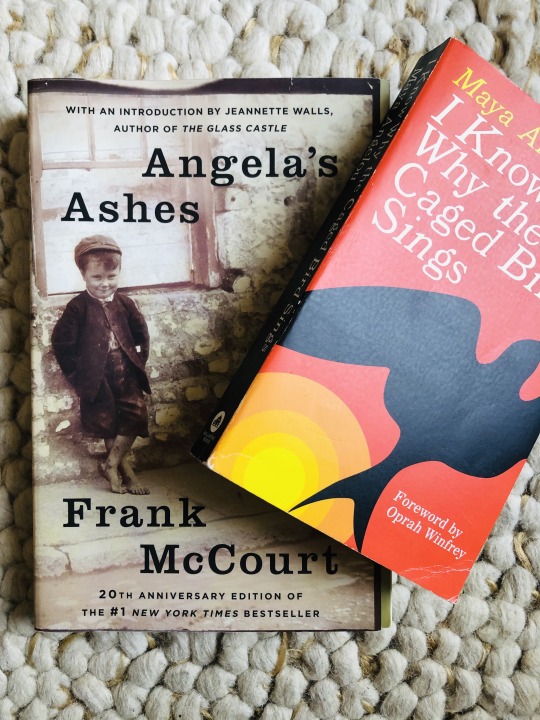
Two classics of the genre, here.
Many of us have read Maya Angelou’s book in high school. Both focus on the same thing: a period of time starting from birth and leading just up to late adolescence. Both are written like traditional first-person stories with beginnings, middles, and ends, and, were it not for our knowledge of their source material, might easily pass as romans a clef. I also think that both are examples of “misery lit,” although I think that that genre is overly hip and reductive for Angelou’s work, which is about so much more than just her misery. But they both focus on their childhood traumas in such a plain, unadorned, simple way, it is shocking and, for those of us struggling with these same issues, healing.
----------------------------------
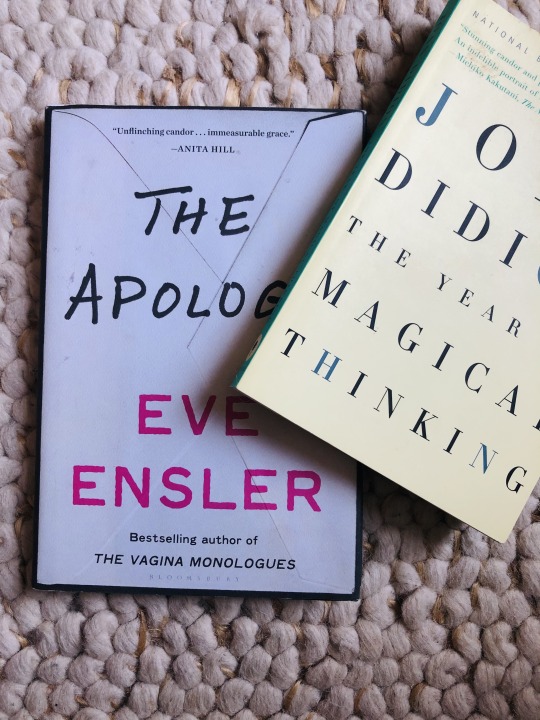
The Apology and The Year of Magical Thinking are examples of how the memoir can focus to a degree of incredible specificity. Both focus on pain but are concerned with different parts of experience. Didion writes only about one year of her life, while Ensler writes about almost the entirety of it, but with a focus on a single, prevailing experience. Both are harrowing in completely different ways and both are exquisite in the way they lift up their struggles to find meaning and truth, things that pertain to the reader’s own experiences and which he or she may also come into touch with in reading these books. They truly are gifts in that regard.
In a manner of speaking, these two books are like two, very long, book-length personal essays. They rigorously explore and interrogate their premises and do their best to extract whatever possible that is meaningful out of that exploration.
----------------------------------
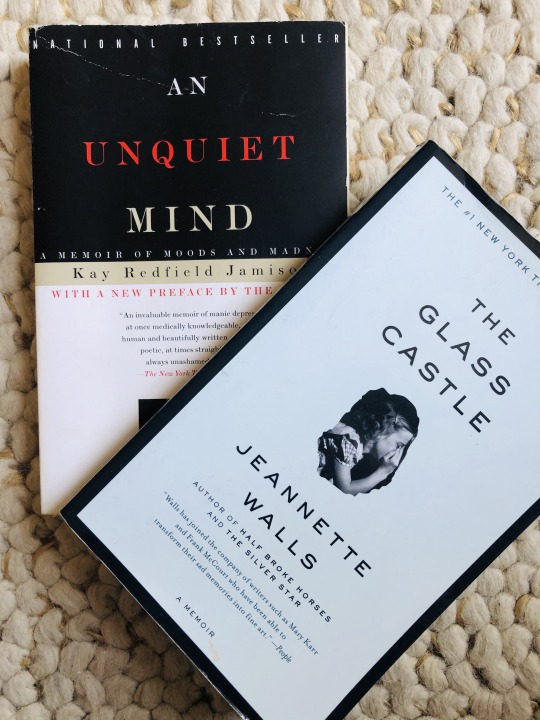
More “misery lit”! I actually don’t mean to be reductive in saying that. Both of these are fabulous stories concerning completely different encounters with mental illness and they are far beyond some hipster term of art. But there is a lot of memoir writing out there that explores the darker ways some of us were brought up and I don’t think there’s anything wrong with simply naming a certain type of writing that courageously explores how our childhoods might have been compromised.
In The Glass Castle it’s about her father’s mental illness and in An Unquiet Mind, it’s about the author’s own journey discovering and treating her bipolar disorder. Walls writes her story very much like it’s a novel, like Angelou’s memoir, and, also like Angelou, she writes it from the perspective of her child self and it is a compelling account as a result, full of tragic innocence and complicated encounters far beyond the reach of a child to properly grapple with.
Jamison’s book is very clinical, although she recounts her episodes frankly and shockingly and really brings you in to her subjective experience of insanity. These two books—not to mention Eve Ensler’s—have given me the courage to begin exploring my own encounters with mental illness and childhood trauma and to commit those experiences to writing.
----------------------------------
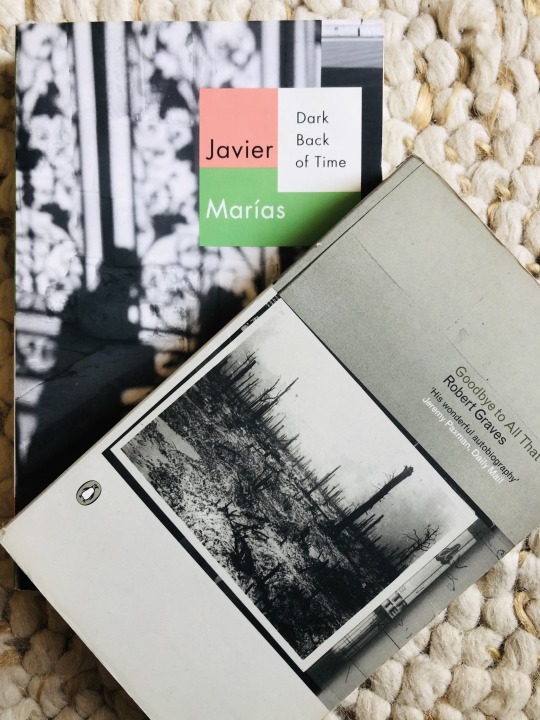
As I continued to research I started coming upon a very interesting type of memoir, the experimental memoir. That’s really interesting I thought. How does one write a memoir as a form of experimental art?
Not that this one is expressly experimental, but Robert Graves’ book is slightly off-putting in that fecund, experimental way: the bulk of it is dedicated to his experience in the trenches and it’s told with grit and harsh realism. But it starts with his schooldays and ends briefly, and curiously inconclusively, with scenes of fatherhood and tutelage. It’s a rather unique rendering of a life. Towards the end he admits that his original idea was to use the notes that he took on the frontlines for writing a novel but changed his mind after realizing that he would be desecrating his experiences and his memories and his sacrifices by layering a plot and storyline onto them. He then decided to write it simply as a factual account.
Dark Back of Time, however, is a full-on experiment in autobiography and it is always slipping in and out of reality, imagination and historicization. He spends a large amount of time writing about an old soldier who died accidentally on a hotel balcony in South America but he gets to this through talking about the reactions that his peers in Oxford had to one of his novels which they suspected made use of their lives. Truly an eye-opening experience to read autobiographical material refracted in this way.
----------------------------------
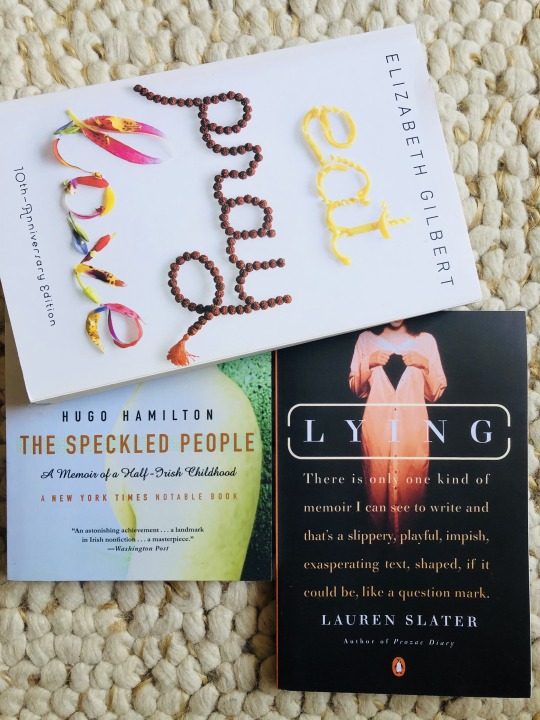
I haven’t read these three yet. They are “on deck,” as it were. Eat, Pray, Love needs little introduction, obviously. The Speckled People was highly recommended by a fellow writer and Lying came up in an online search as a prominent example of the experimental memoir.
At this point, it was already clear to me that I was writing a different kind of memoir than any of these examples. I realized that I was in effect writing personal essays without knowing it. I knew very early on that I wanted to eschew responsibility for an overarching narrative of any sort. I wanted to commit myself to specific topics that could be covered discretely in one chapter each. When I read the Graves’ passage regarding the desecration of his time on the battlefield, I thought of my own “war stories” and thought similarly that trying to give them a plot, while not exactly a “desecration,” would feel unnatural and inauthentic. What was feeling natural was to pick separate experiences in my life and devote a chapter to those I felt were strong enough for further elucidation. The time I got stuck on a mountain overnight with a friend. The shock of coming to NYU. The decision to leave the music industry. There were so many other parts of my life that seemed to deserve specific treatment in this way. I naturally started coming upon essay collections as a result.
II.
I took an online course by Alexander Chee called, “How to Write an Essay Collection” and afterwards it became much clearer what kind of book I wanted to write. I read about half of his reading list for the class and, along with the volumes I’d already dug into, I learned what a personal essay really was and what it wasn’t, and knowing this difference demonstrated to me quite clearly that the book I was writing wanted to be an essay collection in the truest sense of what an essay really is. The Leslie Jamison quote at the top of this blog post became true for me as well. My memoir could no longer stand being a memoir and had become a personal essay collection.
During the class, Alexander Chee recounted an irony regarding his own personal essay collection. He said that he found it curious when readers of his book would tell him that they found so much of him in it. “There’s actually not very much of me at all,” he said; and he mentioned this in order to illustrate what a personal essay collection is and what it isn’t. The reason why there’s not that much “of him” in his essay collection, nor, for that matter, why there isn’t much of any author’s life in any of their personal essay collections, is that a personal essay, despite being “personal,” is primarily geared towards externals not internals. “Pity the personal essayist,” the author Sloane Crosley writes in her New York Times review of Jamison’s latest essay collection, Make it Scream, Make it Burn, “fated to play with a reader’s tolerance for that most cursed of vowels. Too many “I”s and you’re self-absorbed; too few and: Where are you in this piece?”
Self-absorption as a liability in writing is understood enough, though, when it comes to autobiographies and memoirs, the liability becomes unavoidable and, if anything, necessary. We read those books exactly for the purpose of the big drop into an author’s psyche, willingly diving down the subjective abyss, basically swimming in “I”s (the best ones allow us to do this gleefully).
Not so in a personal essay, where the restriction on egoistic license holds. And yet: how do we include and implicate ourselves into the topic? without stepping on traps of self-absorption? This is what Chee was talking about when he said that there wasn’t much of him in his essays: not that he didn’t implicate himself in his narrations—he very much did—but that he skillfully observed this precarious balance.
That balance is undertaken quite differently depending on the author (and in my synopses of the collections I’ve read recently I’ll try to speak about how they’ve assigned “percentages of self” into their essays, what the “lean-to-fat" ratio is, for example, when “fat” could be understood as the strictly autobiographical portion of the essay). It can also vary according to the essay. In some cases it’ll be necessary to fully implicate oneself. In others, perhaps only a passing mention of the author’s impression of the events is needed. But there’s an essential aspect to what makes for a great personal essay, irrespective of ratios of personal to objective, that Charle’s D’Ambrosio captures beautifully in the introduction to his own essay collection:
My instinctive and entirely private ambition was to capture the conflicted mind in motion, or, to borrow a phrase from Cioran, to represent failure on the move, so leaving a certain wrongness on the page was OK by me. The inevitable errors and imperfections made the trouble I encountered tactile, bringing the texture of experience into the story in a way that being cautiously right never could.
This is kind of a Copernican revolution to me. I mean, it had never really occurred to me that you could be wrong and that would be a good thing. In writing I had always striven to make sure that I didn’t insult researchers, journalists, experts and scholars by misrepresenting the truth. Yet, here was basically a license to get it all wrong and admit it on the page and have that be a virtue of the writing.
What this tells me is that what remains key in the personal essay is not some authoritative stance, but the very uncertainty of the perspective, and how that might invite opportunities for a much more intimate relational structure with the topic matter on the part of the reader. This isn’t about ingestion (of data, of info, of ideas, etc.) but about contact. I see that as being very similar to the relationship between reader and author in a memoir, this premium on relation. The only difference—and for me, a very consequential one—is that the primary target of a personal essay’s sight is not the self qua self, but some implication with the content of reality on the part of the self. That intersection is what fascinates me more at this time than simple self-narration.
In this way, a personal essay can kind of be like a stop sign, a signal to halt the gyrating (mostly online) world, with its hyperlinks and ads and other pseudo-references. In fact, in his brilliant collection Proxies, Brian Blanchfield takes on this very task and turns the internet off when writing each of his essays in the collections. In order to take solace within the much more subjective account housed within the pages, an account at once open and tentative, based as it is in doubt, and hermetically sealed, shunning the greater world’s insistence on certification and realism, the essay becomes a prismatic utility for investigation, where perspective and subjectivity are king and certainty and objectivity are actually limiting.
The memoir offers something very direct to the reader: the author’s own struggle with, or journey through, some issue or period in life. The author is the chief protagonist in the drama, the star of, say, the cinematic adaptation of the book. The issues swirl around the protagonist but the camera stays trained on him or her. What I started to notice was that my mental gaze was always scudding away from the protagonist (me) and over to what else was in the frame. And so the personal essay as I began to learn about it became a much more appropriate vessel for these concerns, even as I knew that I would need to implicate myself in the action, keep myself in the frame. Striking that balance in a way that is both specific to me and my experiences and yet observant of the proper limits of the genre, so as not to veer away and “regress” back into memoir, has become my chief objective with each of the essays that I’ve been writing.
----------------------------------
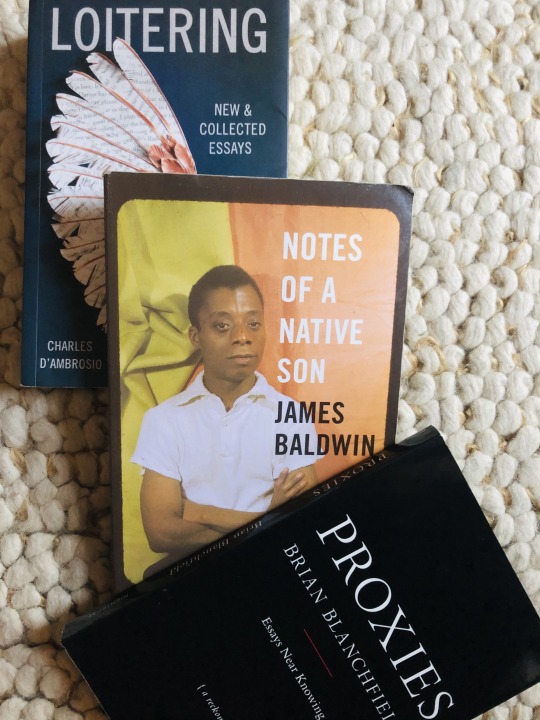
These three collections might be my bible for this project. Each are very different in style and application, but each is similar in that joyous experience of reading a paragraph and being so stunned by the insight that one has to turn the face away from the page for a moment (or two) to let it sink in. Baldwin is, of course, the king of this sort of thing. There were times while reading his essays when I actually had to straight up close the book and put it down in order to absorb what was going on. The title essay which is about Harlem, his father, and his early awakening to the depth of his country’s racism, is perfection on both the level of content and form. It does what an essay does best: leave you with the unequivocal residue of human feeling twisting around the grander issues with which that essay is concerned.
Each essay, in all of these volumes, is like a discrete nugget, a piece of writing, contiguous, open and alive, that can be read and reread, like an oracle you visit throughout your life, which, using the same words, speaks to you anew each time.
Ambrosio’s essays are absolutely nimble and virtuosic; his language is muscular and sinewy; his sentences are lean and long and you can ride them effortlessly and when you finish them and their paragraphs, you are left with an image of a truth that was planted in your sight without you knowing. It’s an exhilarating experience.
Blanchfield’s essays are a revelation of subjectivity. This volume was part of Chee’s reading list and I can’t express enough gratitude for having been directed to it. Perhaps Blanchfield is the master of nesting the autobiography within the confines of an essay. When he toggles between the external and the internal, you don’t notice it. It’s effortless. His ability to tell a giant story in one paragraph is inspiring. The tone and delivery is somewhat sacral, he’s a poet, after all. But it is also delicate, graceful, poised and elegant. And deeply personal. How someone can title an essay “On Frottage” and turn the reader’s attention to the true significance of the topic—AIDS and the gay scene in the 80s and 90s—and all of the social significance intertwined in it, along with implicating himself in a nakedly autobiographical way, is beyond me, but I am happy to be in the audience for it.
----------------------------------
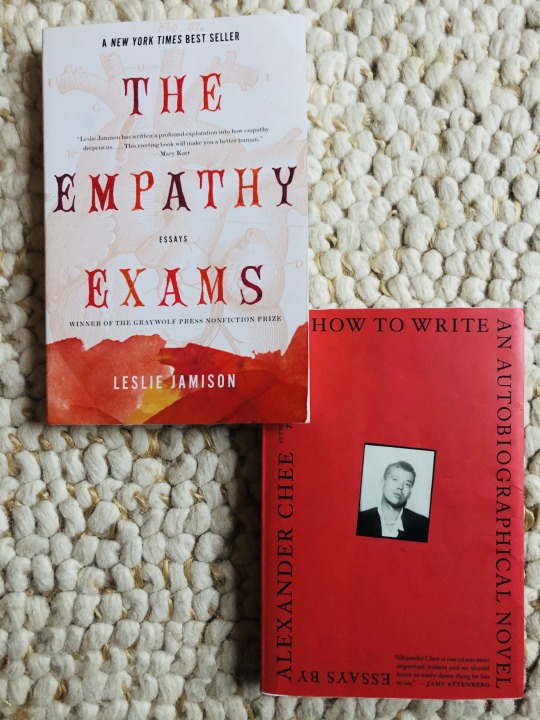
What I love about these two collections are their stealth and form. Their stealth comes from how they read, not so much as casually but as without artifice or adornment, and how this aspect lets the reader’s guard down, only to have some extremely penetrating conclusion arrive at the end of each essay, in a manner that the more plainspoken style did not necessarily anticipate. Chee’s prose particularly comes across as either supremely and dryly witty or as modest plainness, but when you finish one of his essays the takeaway is anything but those things; it is profound. Jamison as well. As for their form, they tend to do some adventurous things. One of Jamison’s essays uses a kind of diagram of storytelling which she learned in a writing class to “tell the story” of a traumatic episode involving a horrific episode of violence she experienced in South America. The essay is called “The Morphology of a Hit.” It’s a perfect example of something else that I really love about personal essays which is their ability to take leaps in form when that form enables a type of storytelling that otherwise isn’t possible. Chee does this very thing in a somewhat humorous essay, the titular one of this volume, which is just a long list of life hacks and writing tips. I’m really grateful for the insight that this man has given me into the writing process. My copy of his book is signed, as I first became aware of him at a reading of his with Edmund White at NYU which my good friend invited me to. So I’m very grateful to that friend as well! He also introduced me to Edmund White so it’s a double whammy!
----------------------------------
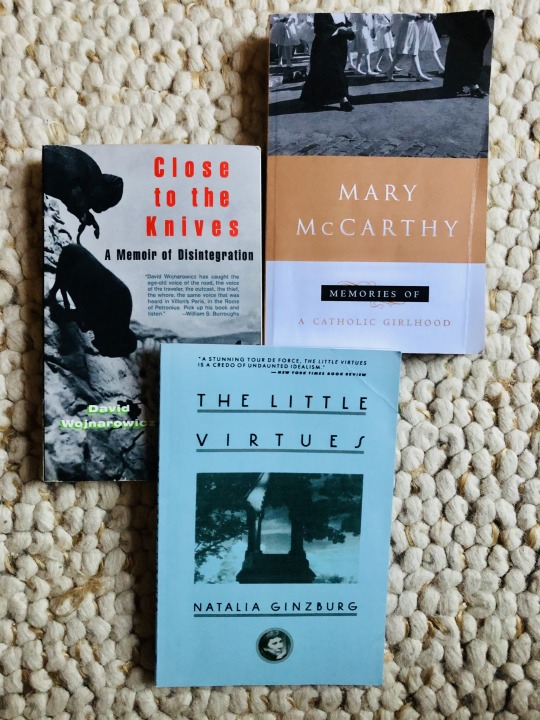
I would’ve never encountered these collections of my own volition without their inclusion on the reading list in Chee’s course, but I’m very happy that I read these. McCarthy’s essays are quite old, dating to the 50s and 60s, I believe, when they were originally published in The New Yorker. They’re all centered around her childhood years, either living with her grandparents or in an orphanage and they are remarkable portraits of intimacy and observation. The same with Ginzburg’s collection, although she writes in a much more enigmatic style. What inspired me most about her essays was how simultaneously aloof and vulnerable they are: she has a way of, say, writing about England, without ever even mentioning the name of the country, yet contriving a recognizable and incisive portrait of it, all from the vantage point of her own experience of the country during a certain time. Finally, there’s really nothing quite like Wojnarowicz’ book. It’s slightly Beat in tone, sometimes surreal and ecstatic, and then progressively more plainspoken and political. But it is all so very raw and pulsing with the heat of experience and desperation and anger. Wojnarowicz was an incredible artist, a sculptor and photographer and he lived in the East Village of the 80s and reports from the frontlines on the AIDS crisis. His work bears the stamp of a deeply tuned in artist confronting the hypocrisies and injustices of his time.
----------------------------------
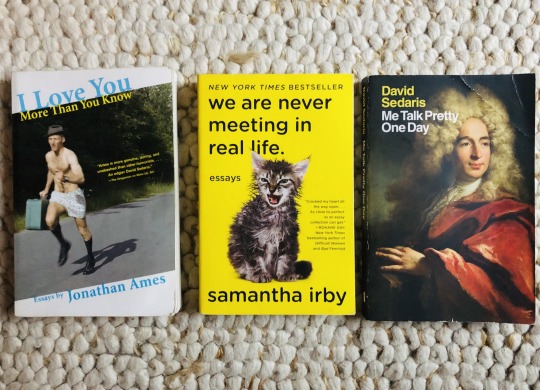
I put these three together mostly because these collections are explicitly comedic, although each has its own manner of using humor to communicate a deeper message. Jonathan Ames is well-known as a very funny novelist and the creator of the TV show Bored to Death. His essays are very short and very direct. There’s almost no commentary and he just narrates the events. The approach of leaving room for not knowing is very noticeable in his work, as he often qualifies his observations with humility and openness. The work comes across as very tender as a result. Irby is laugh-out-loud funny. I don’t know how she does it but she has a way of sending herself up and making fun of herself and her limitations that is both funny and painful at the same time. Commercialism, body positivity, and personal achievement are only some of the themes that are explored through that lens of self-effacement. Her ability to put herself under the most lacerating gaze of the authorial microscope and coming out the other end of that examination as a strong individual is unparalleled. I consider this volume must-reading material. In terms of exquisite construction and intelligence I would have to put Sedaris up high on the list, though his work is popular enough and his collections prodigious enough that his reputation for that kind of writing needs no further illustration here.
----------------------------------
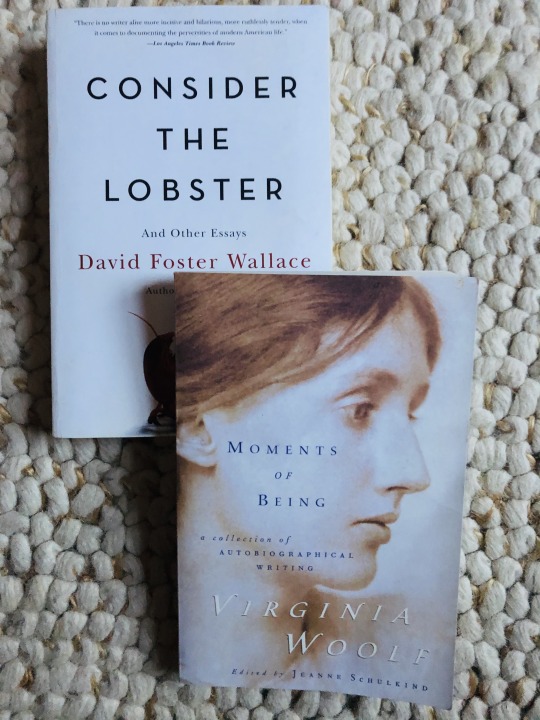
Virginia Woolf is popular as an essayist for collections published much earlier than Moments of Being, such as The London Scene. The essays here are actually very raw and unedited and so very sprawling, though obviously of high literary quality. She wrote them down like diary entries and then they were found after her death. They feel similarly to McCarthy’s essays in their naked observations of early childhood and family life. Juxtaposing this collection with DFW’s Consider the Lobster is a bold choice on my part, but it’s for the purpose of elucidating my previous point about that delicate “lean-to-fat” ratio I spoke about earlier in this blog post. Woolf’s posthumous collection is “all fat,” one could say, in that her focus is almost exhaustively on her own life and personal upbringing and subsequent marriage. These essays are basically memoir writing in the guise of the personal essay. DFW’s essays, by way of intense contrast, are almost “all lean,” in the sense that he spends almost no time talking about his personal life. The closest he gets to that is his essay on 9/11 where he goes over the details of where he was when it happened. The rest are what you’d expect from the author: penetrating accounts of the subtleties and hidden motivations of the cultures and people he investigates. He is basically like the most intelligent wartime journalist where his “wars” are the John McCain presidential campaign of 2000, the AVN Awards Ceremony, or the Maine Lobster festival.
----------------------------------
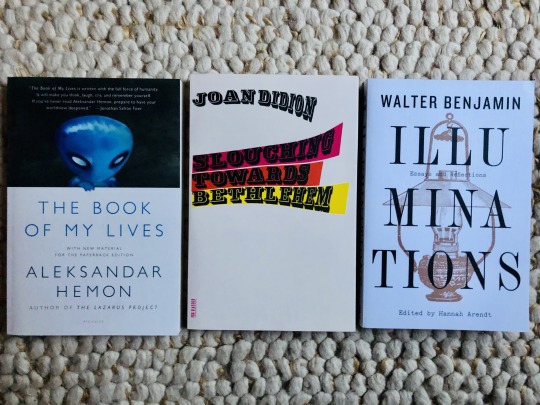
I have yet to read these collections but I’m very much looking forward to them. Hemon’s essays are about his upbringing in the war-plagued Balkans of the Nineties and subsequent emigration to the US. Didion’s basically needs no introduction as its de rigeur for essay writing. I’ve included Benjamin’s because of his critical insight. He’s not writing about his personal life, but his gifts for analysis will be really helpful to be exposed to for anyone undertaking the task of writing a personal essay. I have not included a picture of Susan Sontag’s collection Against Interpretation because it’s on order, but that one is also on deck. As are two other collections not pictured: Mary Oliver’s Upstream and Rebecca Solnit’s Hope in the Dark.
#charlesdambrosio#leslie jamison#james baldwin#vladmir nabokov#edmund white#frank mccourt#maya angelou#eveensler#joan didion#kay redfield jamison#jeannette walls#javiermarias#robert graves#elizabeth gilbert#hugohamilton#laurenslater#brianblanchfield#alexander chee#david wojnarowicz#mary mccarthy#natalia ginzburg#jonathanames#samantha irby#david sedaris#david foster wallace#virginia woolf#walter benjamin#aleksandar hemon#writing#memoir
17 notes
·
View notes
Text
Alright, I pulled out my corkboard and red string again, this time in hopes of dissecting the MAG timeline to see if there is anything there to support my fan theory of:
~Could Jurgen Leitner be Martin’s Dad~
And so far, signs point to a solid "it could be possible”. So in lieu of this, I will be presenting all my evidence with exceptional bias so it better illustrates my desired outcome. Okay? Okay! Let’s get into it.
Let’s begin with 1985, when Jurgen Leitner supposedly begins renting an office in Pall Mall, central London. Presumably this is just where he sets up an office, and not the actual location of the Library, which isn’t something we get-- anyways, getting sidetracked, uhhh.
Right, we know, vaguely, that Martin was born in 1987, two years after Leitner would have set up shop in Central London; and interestingly enough, in that same year of Martin’s birth, Leitner attempted to hire some people to dig a big ol’ hole in the floor of his office to lead into the tunnels built beneath the building. And this could just be wishful thinking, but I believe it is implied that these tunnels connect to the other tunnels of Millbank Prison. Interconnected, and with many exits leading to various parts of the city. Basically, a needlessly intricate means of escape (I guess balconies and back doors just didn’t exist yet, you know) should shit get real. Anyways, the point I’m trying to make, is that it would make sense for Leitner to suddenly be very interested in having direct access to these tunnels from his main office after receiving news that he’s a father, or whatever. Or maybe it’s just because he’s always been a loser that loves vibing in tunnels.
[Obligatory readmore, because this shit gets long, and even more ramble-y. Also I’m not sorry, because y’all are more than welcome to continue scrolling past this mess]
Alright, now fast-forward to 1994, the destruction of the Library. At this point in time, Martin would have been 7. Now hold up! According to the Magnus Archives Wiki, Martin’s father abandoned the family when he was 8 or 9; so isn’t that a whole in the theory right there? No. It’s not. Because the only thing that is implied about Leitner around 1994, is that he went into hiding after the destruction of the Library. At no point is it implied that he even left the country (or even London, but like, I refuse to believe he’s that stupid; even if that alternative is hilarious). To set up my point, I’m going to shift the focus onto Martin now, and what his life might have been like when he was younger.
So, by present events (present actually referring to like, pre-season 4, actually), Martin’s mother is in a care home in Devon. Could be because care homes are cheaper there, or something, I have no idea. Honestly people in my family don’t live long enough to ever even consider this option, so I don’t know how assisted living works at all lmao. But let’s say, for simplicities sake, that Martin actually just grew up around Devon; and I’m throwing a dart at a map and declaring Plymouth as the city he grew up in. Anyways, why does this matter? Because I do in fact believe that Leitner is stupid enough to think that changing which county he lives in counts as being in hiding. And he gets maybe one (1) good summer with his family before the weight of his sins bare down on him, and he realizes that staying in one place really isn’t an option. So maybe he tries travelling around a bit; but inevitably he always ends up coming back to Plymouth. It takes him a year, maybe two, to finally realize that this won’t work forever. His habits are too predictable, and what’s this? The mother of his child is getting sick; and her condition only seems to worsen over time (you know, like how it usually works when someone is taken ill.); and Leitner gets it into his head that he could be the cause of it; so what is the safest course of action, but to completely abandon his family? Surely things will turn out for the better for them all if he were to just... disappear. To cut ties entirely, so as to make sure no one ever comes after them in an attempt to get to him.
And that worked out fucking great, didn’t it.
Bunch of unimportant stuff happens, and eventually Martin ends up dropping out of school, presumably only a year early from graduation (weird but fine); and it’s safe to assume he eventually ends up traveling to London in hopes of better job opportunities. Plus, if he’s gonna be lying on his CV, probably better to head out of county to some place where no one knows him from anywhere to begin with, right? That makes sense, and none of you can say otherwise.
And where does he find himself sliding into a new job position? Oh, that’s right; at the Magnus Institute. In the Library. I’m just saying. I am just saying, that’s a little interesting. I mean, he lied about having a degree in parapsychology on his CV; so if Bouchard really wanted to play along like he thought the CV was entirely legit, it actually would’ve made more sense to put him in Research, or even in Artefact Storage with a degree like that. But nope, Bouchard put him in the Library. Though, I guess we don’t know exactly what all might’ve been on Martin’s faked CV. But I swear to god, if we get bonus content that’s just Martin’s faked CV and it even hints at him working at a “family library/bookshop” I will spontaneously combust.
Regardless, in 2009, supposedly (according to the wiki), Martin began working at the Institute. Personally, I always thought he started working there in 2010, but that doesn’t matter. I actually like 2009 better, because then a year later, Leitner apparently begins working with Gertrude Robinson. Which I find interesting. I mean, really there’s no reason for them not to work together, I just find the timing of it interesting. Of course, Leitner (in MAG80) alludes to the fact that Gertrude was likely only working with him because there was a lack of anyone else around. But that really only explains Gertrude’s interest in Leitner. What attracted Leitner to the Magnus Institute in the first place, I wonder? Aside from the fact that it’s essentially the Library of Alexandria of research on the Entities.
But Leitner had managed to stay out of public eye for about 16 years, why would he chose right around then to start playing peekaboo with the Beholding? Rhetorical question, of course. Y’all should already know exactly where I’m going with this line of questioning. Martin. Martin is what lead Leitner to the Institute, and to Gertrude. Dude just wanted to check up on his son, and now he’s just as trapped as everyone who works for the damn Institute because of all these weird rituals and shit. Plus maybe there was another reason why Leitner went through so much effort to help Gertrude, even putting himself on the line for it; and I think we can all agree that Leitner is a pretty selfish dude who’s only real character trait is being like a fucking cockroach. Straight up, the only way to kill a cockroach is to beat those suckers until they pop like a fucking pimple-- sorry, I’m actually getting ahead of myself, I don’t want to talk about that yet, um.
Leitner’s biggest character trait, and on some level, character flaw, is his Self-Preservation instinct. When the going gets tough, his own health and safety comes first. But maybe he gets a bit sentimental in his old age, and maybe he struck a deal with Gertrude; if he helps her stop the Unknowing, (or actually I think it would’ve been the Dark’s ritual first), she will bring his son down to the tunnels so Leitner can see how he’s grown, and maybe even talk to him. I just think that would be interesting character motivation; because at the end of the day, it’s still a pretty selfish motivation. But at this point, Gertrude’s only other option for help is a teenaged Shadow the Hedgehog wannabe; so she’d likely agree to just about anything for the extra pair of hands. And given what later happens in regards to the Dark’s ritual, which then results in Gertrude’s death; Leitner gets scared back into his hole in the ground.
But hey, I guess things actually kind of worked out for ol’ Jurgen. Because like a year later, his son* (*allegedly, according to apparently no one but me) starts living in the Archives. It’s like he’s living in his son’s basement, he can just pop up for tea and say hi whenever. Maybe complain about all the bugs that keep crawling around. Or not, because Jürgen Leitner is a coward. But I 100% would not put it past him to shuffle his old bones up into the Archives to stand creepily at the edge of wherever Martin was sleeping and angst quietly at the sight of his son. It’s creepy, funny, and sad. Basically a peak TMA scenario right there.
Then Leitner gets brutally piped by Bouchard. Actually, can I say it like that? “Piped” isn’t some kind of... new-age slang for something, is it? God, I hope not. Anyways; Leitner isn’t just beat upside the head with a length of pipe, but literally pulped by Bouchard (or at the very least implied so), in a way that makes identifying the guy difficult enough that he remains a John Doe straight up until Elias confesses to the murder. Now, obviously there are plenty of reasons for this; given that both Daisy and Basira are familiar with the name Leitner, so presumably other sectioned officers would be as well; so there was at least a slim chance that whatever officer got sent to the Institute upon the discovery of the body might just recognize Leitner immediately. But, and sorry to sidetrack here, but there was just one thing that really stood out to me about Martin. One thing that always stuck with me, that for some reason was the main thing that made me thing Leitner could’ve been his dad.
Martin looks like his father, whoever that may or may not be. It is explicitly canon, that Martin looks like whoever his dad is. So wouldn’t it be better safe than sorry for Bouchard to beat Leitner to a pulp wherein no one could easily discern any major features of him once he was found. After all, it would make things rather messy and a bit too complicated if everyone who saw the body was like, “wow! That looks just like you, Martin.” So really, it’s for the best that not only did Bouchard kill Leitner, but he thoroughly did so.
And so, I will end this already way to long of a ramble with the one thing that solidified me on this theory, and Spoilers for Season 5 of MAG, but... In MAG181 Salesa says, “Now you mention it, you actually remind me of Jurgen a bit. In his younger days of course.” to Martin. Of course, Martin did just shoot out a snappy one-liner about books, but... it’s the clarification of Jurgen “in his younger days”, that gets me. Mikaele could just have easily said something about Martin just “sounding” like Leitner. But the way this reads, and how it’s spoken, even, it seems more like someone that might’ve been looking at Martin for awhile, squinting at him as if he’s seen that face somewhere before, and then right when Martin mentions books, it finally clicks. After all, it would’ve been almost 20 years, or possibly more, since Salesa would have left Leitner’s employ.
So yeah, I admit this theory has a much weaker backbone then my Banks/Folger post, but... I just think it’s neat. And it’s another one of those things that actually doesn’t have any affect on the major plot whatsoever. I dunno, maybe it was meant to be some sort of subplot early on that got ditched or something? Point is, that’s all for now, and with any luck, I will never post another crack theory again, and the TMA tag can be safe from my ramblings once more.
#burl posts#the magnus archives#tma spoilers#tma fan theory#martin blackwood#jurgen leitner#no editing; we post rough drafts like idiots#also i didn't actually write this with nearly as much bias as I intended too#i'm too facts-based; and the moment i try saying something that isn't absolutely factual#i'm too quick to add a ''this is only alleged we have no canon proof''#did the same thing with my last redstring theory#i actually think i might start calling my tma theories ''pink-string nonsense'' because it's less#red string means; IT HAS TO BE TRUE IT DEFINITELY MAKES SENSE#whereas pink string is more; IT COULD BE TRUE BUT REALLY I THINK IT WOULD JUST BE NICE/COOL
33 notes
·
View notes
Note
Hello!! Could we possibly get some Missy fluff? I feel like Missy tends to get neglected when it comes to fluff. ❤️
Hello! Thank you for the request! I hope you enjoy this! 💜
Exception
Missy x Reader
Summary: The Reader is insecure about her relationship with Missy.
Warnings: None
Word Count: 1249

You would sneak into the Vault quite often. It was a thrill to go against The Doctor’s orders. You usually didn’t do so out of fear of being accidentally hurt by some vengeful alien on the warpath, but venturing down into the Vault didn’t seem to be that risky, despite what the Vault’s inhabitant proclaimed on multiple occasions.
“Do you think he knows about this?” You asked aloud, wandering around the Vault, gathering what you needed for afternoon tea. Thinking about it,you wouldn’t be surprised if The Doctor did know, he did seem quite perceptive, unlike Nardole, who claimed to be perceptive but was really the opposite.
“Would it matter if he did, dearie?” Missy spoke accusingly, with a hint of sadness she tried to mask. She sat at the piano, trying to distract her quickening heartbeats with some soothing piano while you laid out a tea set with some snacks on a nearby table. Your relationship with Missy was quite new and both of you had your own insecurities about it. You being Human put a strain on both of you, and adding the fact that you were a friend and companion of The Doctor did not lessen any of those fears of fragility.
“Not really, if he does know, he clearly does not mind me being down here, I just fear that he might blab to Nardole or Bill. Who, if you might have noticed, are not that fond of you. However, if he doesn’t know, it would be hilarious to see his face when he finds out!” You turned around after finishing setting up the tea set and snacks and leaned against the table.“Would you mind if he knew, Missy?” Your tone was quite, but pointed, causing Missy’s fingers to stop and her head to turn to you abruptly, mouth slightly agape. She knew what you were referring to, even though you never explicitly said it, you often felt inadequate compared to her and The Doctor, being just a mere Human, and becoming aware of her’s and The Doctor’s lifelong friendship did not ease your feelings of inadequacy.
“Dearie,” she stood and walked over to you, placing her hands on each side of your face, “of course I would not mind, quite the opposite, really.” She smirked devilishly, trying to make you blush, she loved making you blush. “How about we eat the delicious food you brought for us today, and then, later, I will prove to you how much I care about you. Does that sound okay?” You nodded and let Missy peck your lips quickly before she pulled out a chair for you to sit.
You chatted over tea, trivial things, eager to not openly voice your discomforts about being so young and naive compared to two practically immortal beings. Though, Missy seemed very eager to discuss it, hinting at it every chance she got, hoping to wear you down, until you broke and confessed what was on your mind.
The conversation wandered onto The Doctor as you finished your tea and snacks. Missy had been more open about her childhood than you expected, or, at least compared to how little The Doctor talked about his past. Missy led you to a small sofa, gripping your hands tightly as she spun you around the room until you both reached your destination. She was vibrant and animated when talking about how, while at The Academy she single handedly vanquished a rogue brigade of Daleks, and noted that The Doctor would tell a different story. One where he was more involved in the triumph instead of quivering in the corner like a cold puppy in the rain.
Upon reaching the sofa, Missy laid you down on it, which she quickly followed suit before you could get up and complain.She wrapped an arm around your torso to keep from falling off the edge.
“Missy, this sofa is too small for us to lay like this.” You giggled at her antics.
“Oh fine! I guess we will just have to adjust!” Before you could comment, she hooked her other arm underneath you and hoisted you up until you were laying on her chest. “Better?” she questioned, smirking again.
“Well, I guess it is better than the former position we were in.” You awkwardly moved and craned your neck, unaware of where to lay your head. Missy noticed your blush at the situation, her smirk growing ever so slightly. She drew her hand up and gently pushed your head down toward her chest, giving her permission for you to lay your head there. Your blush only intensified, but you tried to focus on her heart beats to lull you into a state of calm.
After a long silence filled with only the two of your breathing and Missy’s heartbeats, Missy spoke, “Y/N, I think we should talk about what has been bothering you.” Your breath hitched, you really didn’t want to talk about this, you were afraid that if the two of you discussed this then your relationship would end faster than you wished. You eventually asked why it was necessary.
Missy began combing her fingers through your hair, scrapping her nails against your scalp in a circular motion, “The sooner we talk about this the sooner we can get through it together.”
“You will laugh.Or think that I am just being a stupid Human.” Missy immediately placed her hands on either side of your head to maneuver you until you were looking in her eyes.
“I might laugh as a coping mechanism to deal with shock, but I would never call you a stupid Human. You are the exception to the human race.” Missy placed a deep kiss to your forehead before maneuvering your head back to her chest. You took a deep breath before voicing your fears about your relationship with Missy; the age difference, the species difference, how you wanted to be ask important to Missy as she was to you, how you didn’t want to be seen as an ignorant child because of how you little you knew compared to the Timelady. Missy dealt with your fears, one by one, reassuring you of the hold you had on her hearts and how your only foolish mistake would be if you were to deny her love of you. If you were to deny that fact, Missy made it painfully clear that she would break out of the Vault, steal The Doctor’s TARDIS and destroy however many galaxies it took until you got the message. She made it clear that even though the two of you would have many things to work though, she wouldn't want to be with anyone else.
All of Missy’s declarations of love were accompanied with Missy massaging your head and your back. These soothing acts and the repetitive calming drumbeats of her hearts and her soft words of love soon lulled you into a sound sleep. So sound, in fact, that you did not wake when The Doctor entered the Vault. Stopping in his tracks, as he closed the Vault door, when he saw the sight of you enclosed in the arms of his oldest friend.Missy smirked and mouthed a “hush, their sleeping” to the flustered Timelord. Then placed another kiss to your forehead, already laughing at your reaction when you find out that The Doctor didn’t know about you and Missy and your reaction to knowing that you didn't get to see his surprised face.
86 notes
·
View notes
Text
On Shouto, Secrets & Social Isolation
Something that’s been on my mind for a while is, in light of the current situation in the manga, once again worth thinking about: Shouto is still being socially isolated. Kind of like us, only that he doesn’t know it.
We all know that sooner or later, the Touya reveal will happen. It’s just a question of when and how.
Once Shouto learns that Dabi = Touya, that’s gonna be quite the shock to him, considering everything this entails (i.e. his brother was secretly alive for the past ~10 years, lots of mental damage, ended up becoming a villain, could’ve been him instead)
There are a lot of theories on what might possibly happen when he finds out, though it’s clear to say that the whole point of the Touya storyline is to have some kind of effect on him.
What people don’t talk about enough is:
At some point, Shouto could also find out about the whole Deku/All Might/One For All etc. story
He would also learn that Bakugou is in on the secret
He considers both Deku and Bakugou his friends; both are people who know about his family situation and even know about Touya, the one topic he never talks about
All Might was his idol growing up, someone who, unlike his own father, represents a genuine hero, but now turns out to not be the person Shouto thought he was
So how would he react to that?
Shouto doesn’t strike me as someone who would take this personal, but rather someone who understands why this isn’t public knowledge or something Deku/Bakugou would just tell everyone about
In a most likely scenario, he would probably not make a big deal out of this to them
However, the way someone reacts to something doesn’t have to be how they feel about it. Keeping that in mind, what is the one big thing about Shouto’s backstory?
Isolation
Growing up, he was never allowed to be around his own siblings
His social circle consisted solely of his parents, one of which was taken away from him at a young age, the other someone he dislikes and was never treated by as a human being/child
When he first joined U.A., he made it very clear that he wasn’t there to make friends; his goal was solely on becoming the Number One Hero
Though we’re not shown what his middle school experience was like, it’s likely he’s never had friends before
It’s constantly shown he doesn’t understand social cues or really knows how to interact with others socially, still he views certain people as his friends now
So what do these two secrets have in common?
Shouto being left out of them
While he wasn’t specifically left out on purpose, when being isolated from his own siblings is such a fundamental part of his life, secrets can feel a lot more isolating than intended.
Not only does someone from his own family fake their own death (in whatever way), become a villain and still not bother mentioning that upon meeting Shouto for the first time since then (during the camp raid arc), even his friends keep a big secret from him alongside the hero he looked up to growing up.
Shouto, on the other hand, isn’t shown to share any secrets with someone else. Instead, he is very open to people, and has made it clear on numerous occasions how his isolation during childhood has damaged him and continues to be an obstacle he needs to overcome.
In other words, finding out about those two secrets would show him that there is still a distance between him and those around him.
Furthermore, circling back to the Dabi = Touya thing, much like the other secret, this one is also not just kept by one individual, but rather several people.
While we don’t know the circumstances of Touya’s death, chances are the Hero Public Safety Commission knows about it and helped Endeavour to keep this information away from the public, since his death is most likely linked to Endeavor’s quirk-breeding and quirk-training
Shouto is already aware that heroes can be corrupt (see: Endeavor) yet still wants to be a hero because he believes that this is not the norm
Much like with Hawks’ undercover mission for which the HSPC explicitly allowed casualties, their reason for covering Endeavor’s past up would be to keep the balance between the heroes and the rest of society
How would they deal with the Touya reveal? Based on the corruptness we’ve seen from them so far (in reference to Hawks’ backstory and his undercover mission), they would probably cover up their involvement in this/knowledge of Endeavor’s abusive actions to maintain their own credibility
This could lead to Shouto questioning the foundations on which the hero society stands (you know... kind of exactly what the LOV wants to do?)
To be honest, I don’t know how all of that individually and/or altogether would affect him canonically; how that would change his views and bonds, nor am I sure whether or not Horikoshi will even bring this up or just pretend like it wouldn’t make a difference to him, when his own brother, his idol, and two of his friends all turn out to withhold important information from him, as well as the HPSC and their corruptness. Not to mention what would happen once he learns that another hero he looks up to, Hawks, has a kill count!
While the HPSC and Hawks aren’t exactly people close to Shouto keeping a secret from him, they are, much like All Might, a big represenation of what being a hero is all about. Realizing all these entities are not heroic means realizing that heroes are fake. This would distance Shouto from the thing he was born for, the reason he exists, and his personal ambition of becoming a hero.
For one final example on why this should have effects on him, let’s put this into the perspective of
The Trolley Problem:
This ethical though experiment is about choosing to either save one person or a group of five people from being run over by a trolley. Most people naturally base their decisions on utilitarianism (basing one’s decision on the greater good), until that one person is being turned into someone you know (close friend or relative) - then the choice becomes much harder.
Now in this scenario, Shouto is the one person, the group of people is the rest of society
The person in control of who to save is any one of the people keeping a secret from him
Their decisions: the greater good!
Shouto wants to become a hero; wants to become someone who saves others. With that, he would understand and respect the decision to be hurt for the sake of the greater good. However, even when he understands to be sacrificed, even if he specifically gave his okay for this, it would still hurt him to not be more important to people he considers close than a group of strangers. Because why does he not deserve to be cared about?
Additionally, learning about the HPSC and heroes he considers good (Hawks) to not have such a clean slate, would add to the hurt and ultimately weaken or even destroy the trust he has in heroes and his friends altogether, thus socially isolating himself from them.
So while it’s uncertain whether Horikoshi will include this, partially because there is no telling whether Shouto will even learn about the whole One For All thing, it would be great to see that being included, especially as a way to further empathize how damaging the existence of heroes is to those they are close to, despite the fact that their actions are supposed to help people.
#oh and if this sounds like i want to see my boy suffer? i do NOT#but his is a cursed existence and so it will continue to be ig#meta#shouto#todoroki#boku no hero academia#mha#my hero academia#bnha 274#long post#mine#this wasn't supposed to be this long i swear wtf#this could also be titled: how shouto could turn to villainy#it kinda went places it wasnt supposed to#it's kind of 2 metas in 1
68 notes
·
View notes
Text
between the crowds
Warnings: big age gaps, having a kink for older men(?), daddy issues, dub-con, references to past sexual trauma. apart from the last one none of these are explicitly mentioned to be a bad thing so be warned; dead dove, do not eat.
Notes: I swear these warnings are making this a lot sadder than it actually is. OP is projecting onto Remus lets be honest, also i finished writing this at 11pm and i haven’t slept in six days so go easy on me lads. Cannot believe this is the fic i come back w after weeks.
Ship: Intrulogical
Plot: Remus has a very specific type of man that he’s interested in, usually over the age of twenty-eight and looking good in a suit.
Word Count: 3219
--
There are very few reasons a man like Remus rocks up to places like this in leather pants and a belt made of chains, eyes lined, he is searching for a very specific person; or at least someone falling under one of six different criteria. The brunet orders a drink at the bar, his dark eyes flickering over the crowds of people drinking and dancing and doing everything short of fucking on a table.
He sips his drink, a cocktail of at least three different kinds of alcohol and what tastes like raspberries. For a moment he doesn’t see anyone of interest and then his eyes land on someone practically burying himself into the corner of the room, his free hand in his pocket and the other around a glass of whiskey. The man is tall, lean with a head full of ebony curls that look to have been tamed somewhat, but it’s late in the evening and the gel has started to lose its hold. In the low light, blue blazer accentuating his shoulders and curves, he looks at a guess perhaps in his early thirties.
Remus swallows more of his drink, slides away from the bar and up to the other man like a predator stalking his prey. The stranger catches his eyes and leans up a little from the wall, but he doesn’t move away or look anything other than impassive at the approaching figure. “Feel like dancing?” Remus asks, but it’s not the question he’s asking, not with that tone of voice or wearing an expression that is most certainly inviting more.
“Not much of a dancer,” the other man replies, his voice deep and firm as his gaze flickers across Remus’ face, “how old are you?”
“20.” it’s the truth, he is twenty years old, but the stranger is still scrutinising him through narrowed eyes. Remus rolls his eyes and pulls his wallet out of his jacket, showing him his ID “See? I even go to college and everything.” The dark-haired man laughs, his smile is small as he shakes his head a little.
“You’re still too young for me, kid.” Remus pouts in response, folding his arms across his chest as he steps forward, tilting his head to the side as he encroaches on the other’s personal space. “Isn’t there someone your own age you can...play house with, so to speak?” The college student laughs knowing he should be offended, but it’s somewhat a hard feat to upset him truly.
“Boys my age aren’t much fun.” he shrugs “My name is Remus, and I’m legal, isn’t that all that really matters?” He gets a shaken head in response, and sighs, stepping back. “Would it make you feel any better to know I do this all the time?” Another laugh, amused as the other shakes his head again.
“Actually that makes me feel somehow worse.” He gestures in a ‘go away’ motion “Go find someone else.”
And Remus does, he turns around with a dramatic sigh and walks away with the sway of his hips, looking for some other soul to make use of that night.
--
It’s very rare someone says no to Remus, someone like him might as well be carrying a sign that says ‘daddy issues’ and not just because of his penchant for studs and leather and very apparent dependency issues. People like him are generally a catch for a one night stand, especially in clubs like these.
So he keeps his eye out for the stranger, approaches him on some occasions, and eventually being told ‘no’ is so much a part of his routine that he actually waits by the bar until he sees the dark-haired individual just to walk up and wait for the inevitable “Find someone else.” He thinks he might be annoying the stranger, but he doesn’t really care about that either.
True to how most of these stories go, time passes and he finally squeezes a name out of the other man, after watching him down so much whiskey in one night it’s a wonder his liver is still working. “Logan.” He finally mutters out “Now will you leave me alone?”
“You look like you need a break.” Remus replies, teasingly, soothingly “Let me help you get out of your own head.” He leans so far into the other’s space that Logan freezes a little, going to step back. Then there are hands on his cheeks and he’s being pulled into a forceful, bruising kiss. Remus kisses him like he’s starving for the other, his hands gripping but he’s not all that strong, so Logan grips his wrists and pushes him back a little, shaking his head firmly.
“No.” He lets go of Remus and walks away, he’s stumbling a little as he makes his way out of the door, the cold air sobering the elder man a little as he takes a deep breath, but as predicted the brunet has followed him out into the air. “Why do you insist on following me like a lost animal?”
“No-one ever says no to me.” The younger shrugs, looking up at Logan with a grin that is reminiscent of the Cheshire cat, wide and wolfish and eager. “Come on, one night, I promise I’ll change your life.” Logan shakes his head again, for the millionth time he’s said no, but even he’s not so sure he means that anymore. In the outside world the street lamps’ light fall on Remus’ body, his legs wrapped in leather, a choker around his neck, chains clasped to a belt that fastens around his thin waist. Distantly, Logan wants to ask him out of genuine worry if he eats at all, his bones covered only by thin skin and the tiniest amounts of muscle; that alone distracts him from any lust that he has. “How old are you?”
“Thirty-one.” The elder replies truthfully.
“My parents have a bigger age gap than that,” Remus snorts.
“It’s not the same, you’re barely an adult, and I know my comfort zone enough to know the answer is still no.” The smaller folds his arms over his chest, looking up at Logan with wide eyes and a pout and so much want. It would be wrong to accept his proposition, he does not want to accept his proposition.
Remus does not take his no as an answer, his hands winding through the blue suit jacket and pulling him back down into a kiss. A hard and wanting kiss, Logan does not kiss back, he freezes in place and goes to step back once more but Remus pulls him closer; he is not strong and Logan knows he could step back, he could walk away and the other man would have no way to prevent him from doing so. But Remus’ body presses against his in the cold air and his lips part without even thinking, and Logan kisses him back.
The cool air around him doesn’t awaken him from the feeling that rushes through him, his hands coming up to cup Remus’ jaw, lips parting and tilting his head into the kiss; he shivers when Remus’ tongue brushes his own and guiltily feels a warmth that runs to his head and pounding chest. Then Logan steps back with flushed cheeks and breathing a little heavily as he stares down at the smug expression on the younger man’s face “now, tell me no one more time.”
“No,” Logan says, shakily and a little timidly, right before Remus is grabbing his hand and yanking him out into the street. He wants to pull back, he should pull back, he does not pull back. He just follows if that is really the right word for the way he is being dragged forwards by the hand.
By the time he’s stood at the bottom of the stairs that lead to Remus’ apartment, he’s just about realised exactly what emotions he’s feeling. The younger man grins down at him, there’s an excitement in his expression that only people who have been damaged enough to find this fun, gives. Logan does not leave, he really does think he should leave, but then they’re stood outside of Remus’ room, the door opening and the other’s hands are on his body. He knows that despite every ounce of moral argument, Remus wants this, and at some point Logan might’ve understood that feeling too.
He finds himself backed against the closed door, lips against his neck, then teeth; the elder shivers underneath the weight of touch, his mind counting all the points of contact between their bodies. Remus’ hands move underneath his jacket and his head falls back against the woodwork, losing himself in the movements of the younger man’s body, before he’s being dragged towards the bed. Logan kicks off his shoes somewhere between point a and point b, before he’s lying on his back with a lapful of Remus.
The younger kisses him desperately, searching and wanting like nothing the elder man had ever seen in his life. His hands never resting as they push Logan’s jacket off his shoulders, he cups Remus’ jaw in an attempt to just still his ferocity for a second, leaning hard into the kiss the moment he’s dragging the other into it. Remus calms a little, his curious hands unbuttoning the other man’s shirt, but his movements become less erratic. He pulls back from the kiss and Logan’s fingertips trail down his jaw before resting on Remus’ thighs, looking up at him.
“Quit staring,” Remus mutters, a smile quirking at his lips “I can’t focus with you looking at me like that.” Logan goes to reply but he’s silenced by the other shuffling back, his hand wandering between his legs, squeezing the words gently out of Logan. “That’s better.”
Logan watches him shuffle backwards, Remus’ mouth pressed to the hardness forming in his pants. His cock twitches a little, taking note of the hands undoing his zipper. The elder man leans up on his elbows to watch Remus pull down his pants and boxers out of the way and off his long legs, before he settles between them on his stomach and takes him down his throat. Logan makes a noise that is quiet and lustful but mostly relieved, a curse running short of his lips as he watches Remus’ lips stretch around him, feeling him hardening in his mouth. The younger man would grin if he could, watching all the times Logan had said ‘no’ dissipate in the air around him. Now he fully intends to make him say yes, and more than once.
He moves his head at a teasing pace at first, simply to watch as the other sinks into the sensation of having his cock sucked so lethargically; in a way that is almost therapeutic. He takes his time to have the elder man squirm underneath him until finally, he asks Remus to go faster. Remus has dicked around with enough older men to know somewhere behind that passive, innocent facade is a demanding man who wants to be in control, and true to his tendency to play with fire he intends to make sure Logan knows that side of him exists.
He picks up the pace just enough for it to be noticeable but in a way that says he is really trying to piss Logan off; but the elder knows a game when he sees it and refuses to get upset with the younger. Some half of him is unnerved by the situation and doesn’t intend to make himself feel any worse about it. “Faster, please.” Always please and thank you. It’s insufferable, Remus narrates in his own mind.
By the time Logan is anywhere near his release, so much time has passed that the elder is getting frustrated but enjoying it, the sort of way anyone enjoys edging, which is definitely where Remus is heading. He pulls back to wipe his mouth the moment he can hear Logan’s breath hitching, the grin on his face said everything. And Logan grins back, lazily and with a shake of his head. The brunet is sort of reminded of the disappointed looks of the older men in his life but decides it’s possibly not a good time to think about that either.
Remus eventually stops playing games and uses his mouth the way he wants too really, essentially using Logan’s dick as a means to get his throat fucked and not much less. Logan loses it so quickly when that time comes, however, he finds himself almost reluctant to cum, as though it would be a waste of the hour to let go so soon. At least the younger did not ruin his orgasm, there’s one saving grace.
When he’s finished, voice strained and eyelids heavy he notices the way his heart is pounding in his chest like it’s almost shaking. A blowjob so good his heart might actually give out. Remus wipes off his lips on the back of his hand, kneeling up and sitting back on his heels as he looks down at the elder man.
Logan has no lines on his face, no laughter lines or frown lines, he has the slightly ageing skin of a thirty-one-year-old, but he looks still so much younger when he’s lying in Remus’ bed trying to catch his breath, skin flushed, pupils wide and a tired smile on his lips. It makes Remus wonder how much this man has actually smiled in his life, or felt much of anything at all.
He hates that he can relate to that in his own twisted way. But he doesn’t have much time to think about it because Logan’s hands are pulling him down and laying him back with every intent to return the favour.
But the elder is tired and doesn’t want to play games, and neither does Remus really, so when Logan takes him down his throat with no reserve the younger takes the liberty and fucks his mouth like he’s running out of life. He cums hard down Logan’s throat less than ten minutes than when he’d started, his hands roughly fisting the dark curls on the man’s head as he bucks into the heat around him. He makes it very clear he cares very little about how the elder feels about this, but Logan had a feeling that it would be like this and it’s not exactly his first rodeo.
Afterwards, Logan stares at the ceiling for a while whilst Remus cracks open his window and lights a cigarette wearing Logan’s shirt, staring out at the city without a bother for the fact he’s mostly naked and the lights are on so anyone could look in. “You’re thinking too loud.” The younger mutters through a throatful of smoke. “Loosen up man you can’t beat yourself up about it forever.”
“I am not beating myself up.” The elder sits up and pulls on his underwear before hopping up on the windowsill to snatch a cigarette off of the other man “I am simply thinking.”
“About…?” Remus gestures loosely with the hand holding the cigarette, ashes tumbles down against the skin of his thigh but he doesn’t really notice.
“Why,” Logan shrugs and the click of a lighter fills the silence that ensues the word, he takes a deep inhale and exhale “forgive me if it’s too personal, but I do have to wonder why a twenty-year-old has a penchant for men in their thirties and if what I’ve seen is anything to go off, older.”
“You’re right, that is too personal,” Remus replies bluntly, leaning his head against the window, inhale, exhale, his wrist falls against his propped up knee and he watches the smoke pour from his own lips in his reflection. “But it’s because I got very badly hurt and this is what it did to me, now nothing can satiate me...not just sexually...but my entire life, than men who are older, who are the same age that he was, and I assume once I am finally at that age it will be okay.” Logan blows smoke out of the window and does not speak as the words rest on him.
“You are aware that you are quite possibly re-traumatising yourself?” Remus shrugs.
“I don’t really care.” And it’s true, he doesn’t care, he isn’t uncomfortable or upset that this is the product of his pain; he doesn’t regret the men he’s slept with and he doesn’t hate himself for doing it again and again. No matter what words people have had to describe him; from jailbait to whore, he cannot let go of the fact that this is the only healing he’s ever going to know. “I tried therapy, I tried talking about it, I went from a psychiatrist to an expert, to so many people who said that they could help and they couldn’t…” He inhales from his cigarette again, exhaling before he can continue “...because the truth is I am so fucked up that not even people trained to fix me could, so I had to find my own ways of coping and to be honest out of the list I had this is the healthiest.”
Logan doesn’t regret asking but he still shifts uncomfortably. Now that Remus is a little tired and a little wrapped up in his bliss, he is not the same person who dragged him home from the club; he is softer, calmer, and brushing eyeliner off his eyes with his fingers. “I’d say I’m sorry but I get the notion you’re not the type of person to want pity.” The younger laughs shortly in response, smiling around his cigarette as he nods his head. “I do apologise if I overstepped, however, sincerely.”
“I’m an open book, you can ask me any question and I’ll answer it, but only if you can handle the crazy.” He winks as he slides off of the window ledge, putting his cigarette out on his ashtray “Now if you don’t have work tomorrow, old man, I’ve got a few more ideas…”
--
Logan does not manage to shake Remus after that, he gets caught up in his life, not romantically; Remus has no want for such a relationship, but sexually they get tangled up in each other on many occasions, after a while, Logan shelved the guilt. But he eventually calls it quits, not for any other reason but that he needs to move on with his life; because that’s what people his age do, they go to work and they fall in love and they get married. Time is not running out for a thirty-year-old, but there are still things he wants and needs that Remus does not. There’s no argument, no bitter conversation, he just says “this is the last time.” and Remus nods and lets him go.
But every now and then, Remus catches him at the club with a pretty piece of arm candy, and they shoot a small smile to each other between the crowds.
61 notes
·
View notes